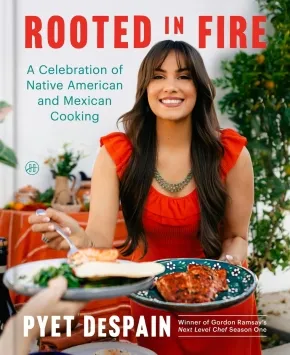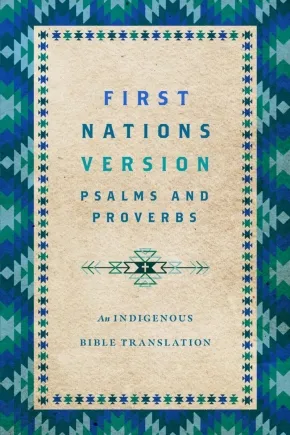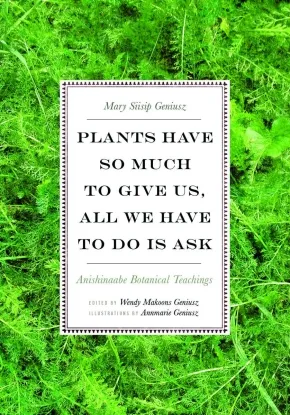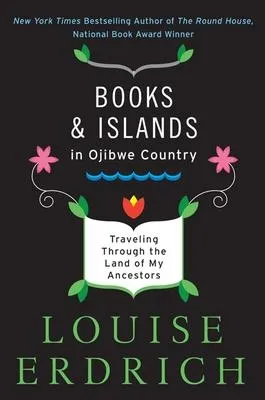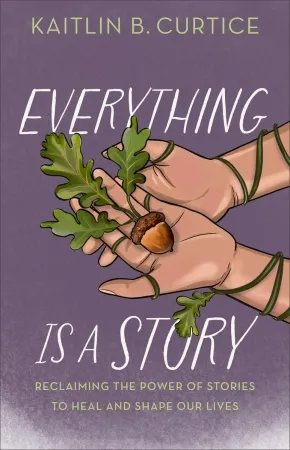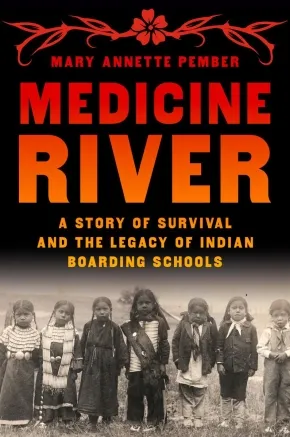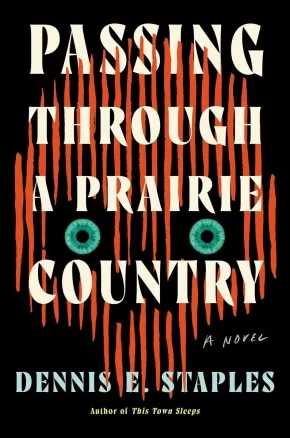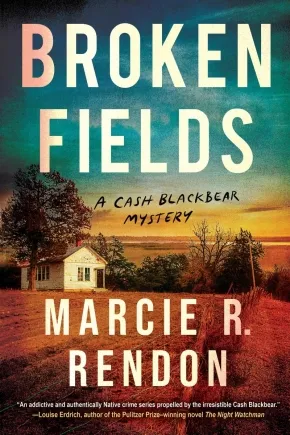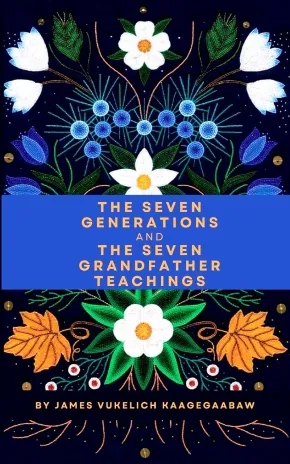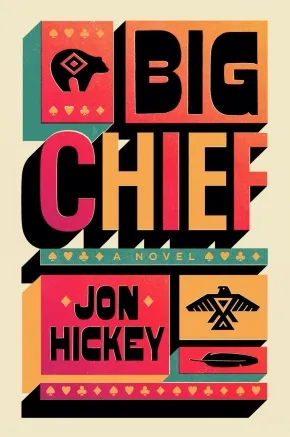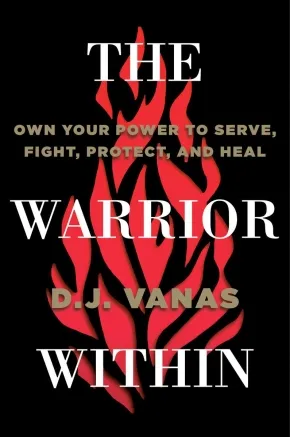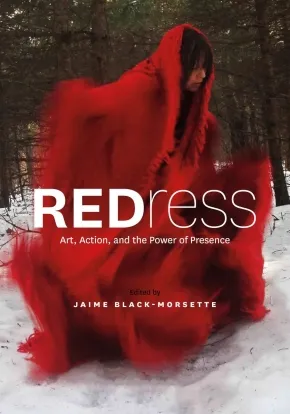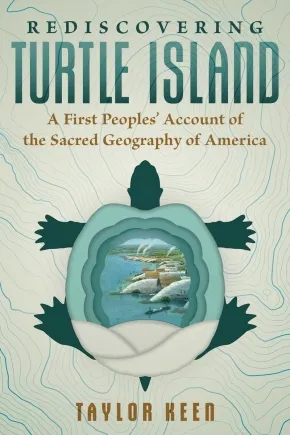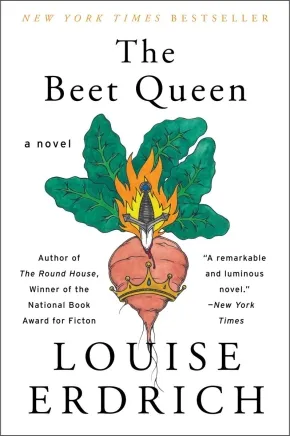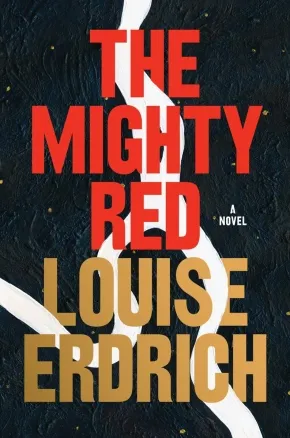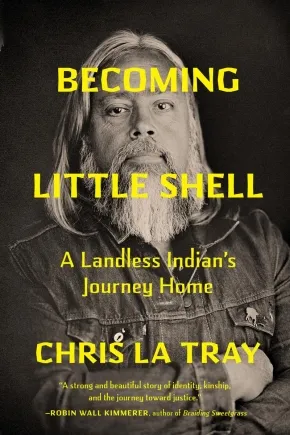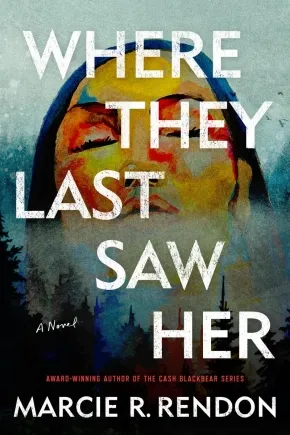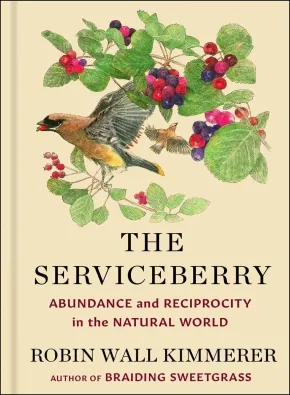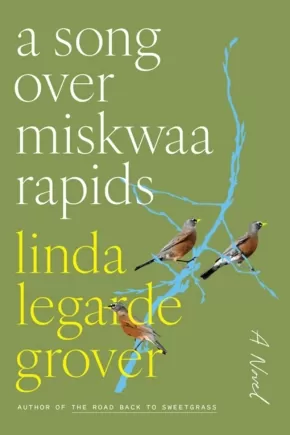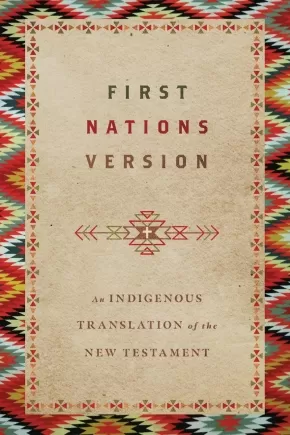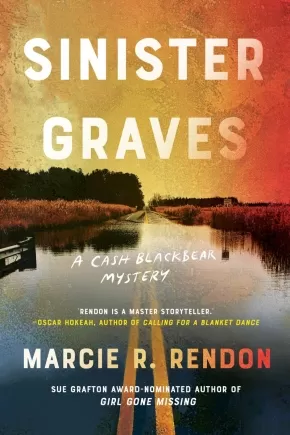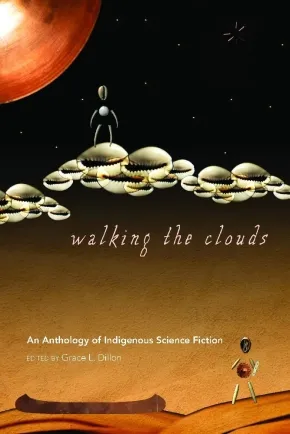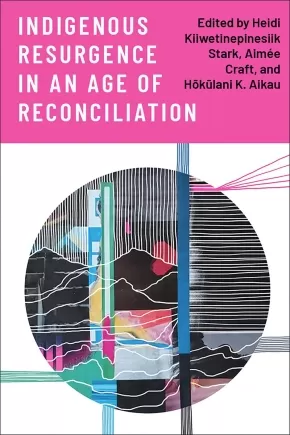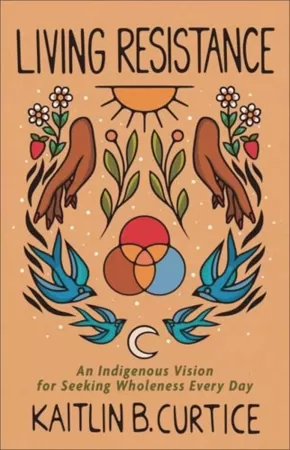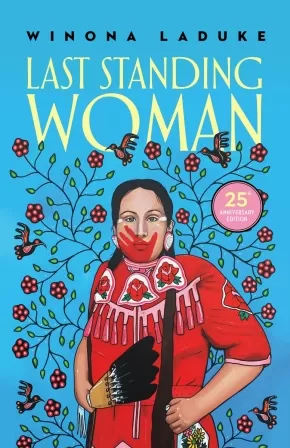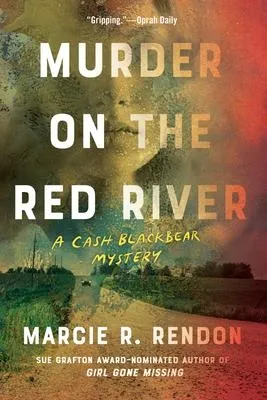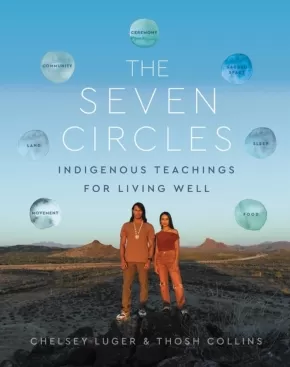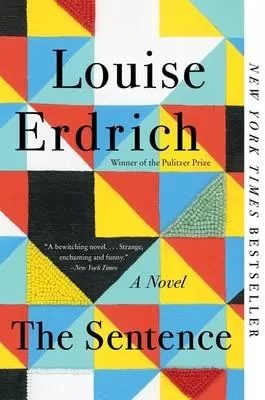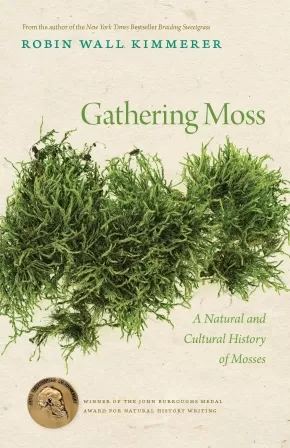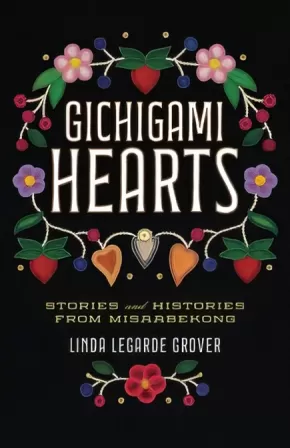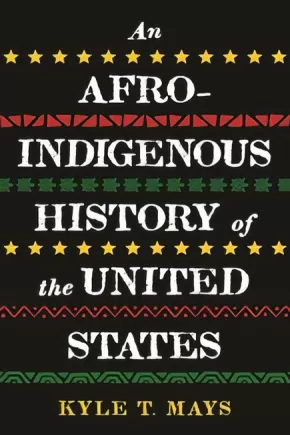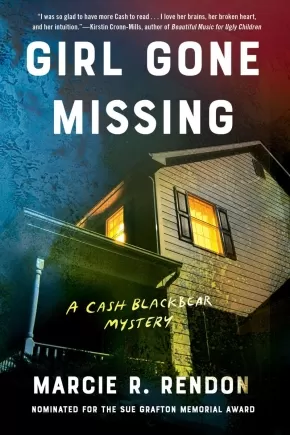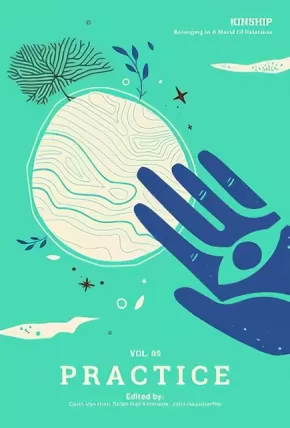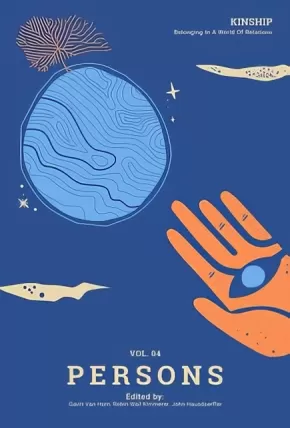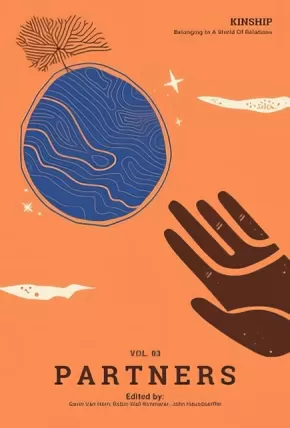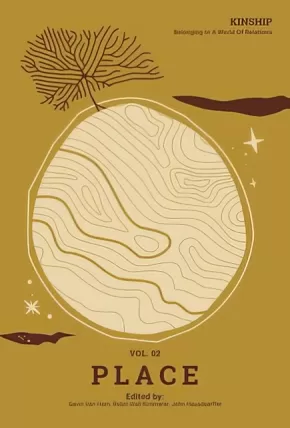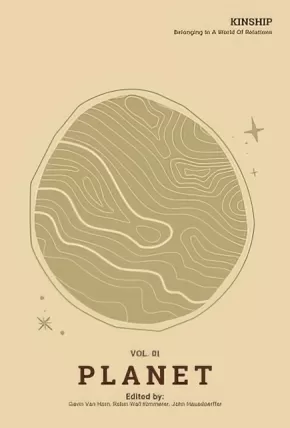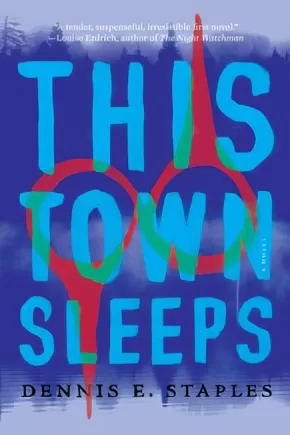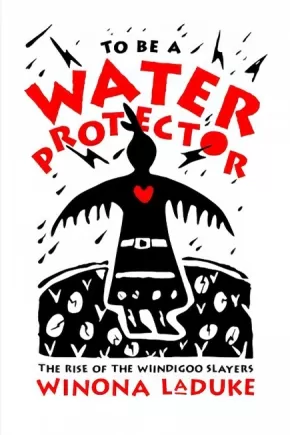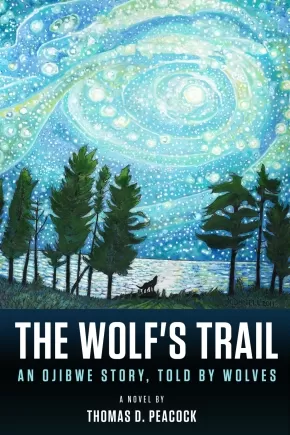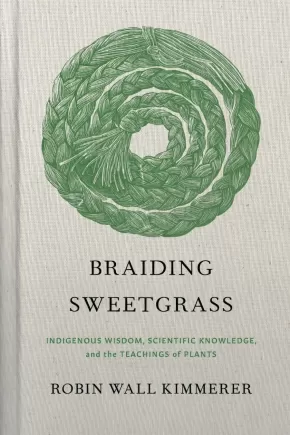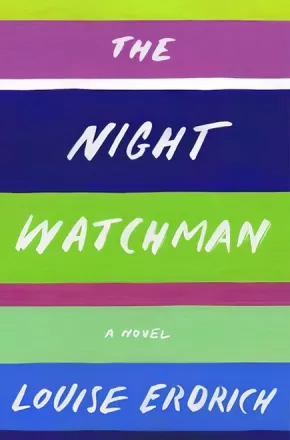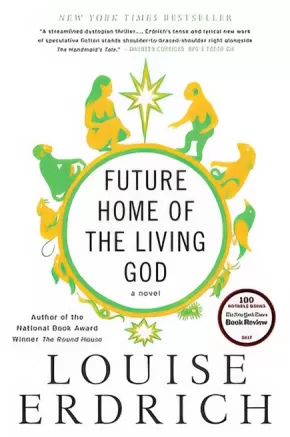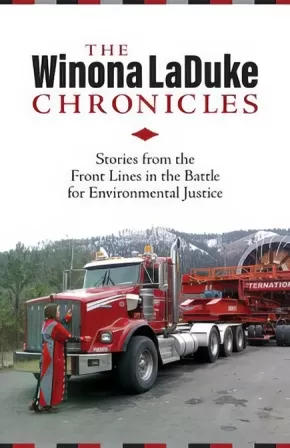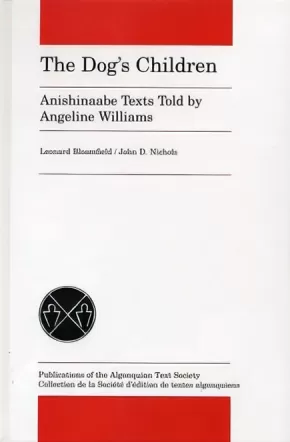
Anishinaabeg
1
-
15
of
56 Results;
Sort By
Go To
of 4
Rooted in Fire: A Celebration of Native American and Mexican Cooking
$43.50
Format:
Hardcover
Reading Level: N/A
ISBN / Barcode: 9780063304079
Synopsis:
Synopsis:
Next Level Chef winner Pyet De Spain celebrates her Mexican and Native American heritage in this collection of mouthwatering recipes, a vibrant fusion that ties us to the land and to one another.
Star chef Pyet DeSpain rose to prominence as the first winner of Gordon Ramsey’s Fox television show Next Level Chef. Now, in her debut cookbook, she shares the joy of cooking fueled by her burning passion for Native American and Mexican American cuisine. Rooted in Fire: A Celebration of Native American and Mexican Cooking is a tribute to her dual heritage—a gorgeously crafted celebration of the diversity of food and the stories, traditions, culture, and profound philosophies of Indigenous people that season each meal.
Pyet shows you how to incorporate a delicious range of key ingredients—from venison, dandelion greens, to sunchokes, bison, and native berries—into more than sixty fusion dishes. Family and friends will be excited to gather around the table to enjoy sweet and savory food such as:
- Three Sisters Salad
- Bison and Sweet Corn Soup
- Fry Bread
- Mexican Chocolate & Mezcal Cake
- Corn Silk and Honey Tea
- Wojapi BBQ Sauce
In addition to her inventive and palate pleasing recipes, Pyet invites home cooks to honor the seasons on our beautiful Earth and connect with essential foodways. “This is more than just a cookbook,” Pyet writes. “It’s giving a voice to Indigenous people, while also highlighting the fusion of my two cultures with fire and purpose.”
Reviews
"Pyet's talent is evident in every recipe in this book. The way she weaves her heritage into her dishes is extraordinary and I've seen it every day since the first time I tasted her work on Next Level Chef. Trust me, you're in for an absolute treat." — Gordon Ramsay
Pyet’s Rooted in Fire beautifully honors her Prairie Band of Potawatomi and Mexican heritage through food storytelling that is both personal and powerful. Her voice is heartfelt, her vision and dedication are clear, and her talent within the Indigenous food movement is undeniable. I’m so proud to see her shining as a modern-day Indigenous food warrior—this book marks an important chapter in her growing legacy." — Sean Sherman, Founder of The Sioux Chef/NATIFS.org and Author of The Sioux Chef’s Indigenous Kitchen and Turtle Island
Additional Information
288 pages | 7.38" x 9.12" | 128 four color food photographs | Hardcover
First Nations Version Psalms and Proverbs: An Indigenous Bible Translation
$26.99
Format:
Paperback
Text Content Territories:
Indigenous American; Native American;
Reading Level: N/A
ISBN / Barcode: 9781514007273
Synopsis:
Synopsis:
Discover the rich tapestry of human emotion and divine wisdom with the First Nations Version Psalms and Proverbs. The latest volume from the critically acclaimed First Nations Version translation brings the ancient Sacred Songs and Wise Sayings of the Hebrew Scriptures to life through the vibrant, poetic imagery of Native American oral storytelling.
Discover Psalms and Proverbs Reimagined Through the Poetic Language of Native Storytellers:
Father Sky is telling us the story of the shining-greatness of the One Above Us All. The starry tent above us shows the beauty that Creator’s hands have made. Day after day, the story is told, and night after night, their wisdom fills the sky. Even though the skies above have no spoken words, all creation has heard their message.Psalm 19:1-3
From the strength of your heart, put all your trust in Grandfather, and do not hold yourself up with weak human thinking. As you walk the road of life, make every step a prayer. Grandfather will then make your eyes straight and your paths safe.Proverbs 3:5-6
Whether you're seeking solace, strength, or spiritual insight, the First Nations Version Psalms and Proverbs will guide you with its profound expressions of praise and trust in the Creator. Step into the harmonious blend of ancient wisdom and indigenous tradition to discover a spiritual experience that speaks directly to your heart.
Reviews
"The First Nations Version is far and away the most creative Bible translation I've ever read. It's an exciting alternative to the boring, stodgy renderings that have dominated the English market for centuries. All readers can open the FNV and experience old passages in new lights. Talk about it with your kids. Study it in churches and classrooms. Use it in worship. The Bible becomes alive!"— Matthew Schlimm, professor of Old Testament at the University of Dubuque Theological Seminary
Additional Information
192 pages | 6.00" x 9.00" | Paperback
Plants Have So Much to Give Us, All We Have to Do Is Ask: Anishinaabe Botanical Teachings
$31.99
Artists:
Editors:
Format:
Paperback
Text Content Territories:
Indigenous Canadian; First Nations; Anishinaabeg;
Reading Level: N/A
ISBN / Barcode: 9780816696765
Synopsis:
Synopsis:
Mary Siisip Geniusz has spent more than thirty years working with, living with, and using the Anishinaabe teachings, recipes, and botanical information she shares in Plants Have So Much to Give Us, All We Have to Do Is Ask. Geniusz gained much of the knowledge she writes about from her years as an oshkaabewis, a traditionally trained apprentice, and as friend to the late Keewaydinoquay, an Anishinaabe medicine woman from the Leelanau Peninsula in Michigan and a scholar, teacher, and practitioner in the field of native ethnobotany. Keewaydinoquay published little in her lifetime, yet Geniusz has carried on her legacy by making this body of knowledge accessible to a broader audience.
Geniusz teaches the ways she was taught—through stories. Sharing the traditional stories she learned at Keewaydinoquay’s side as well as stories from other American Indian traditions and her own experiences, Geniusz brings the plants to life with narratives that explain their uses, meaning, and history. Stories such as “Naanabozho and the Squeaky-Voice Plant” place the plants in cultural context and illustrate the belief in plants as cognizant beings. Covering a wide range of plants, from conifers to cattails to medicinal uses of yarrow, mullein, and dandelion, she explains how we can work with those beings to create food, simple medicines, and practical botanical tools.
Plants Have So Much to Give Us, All We Have to Do Is Ask makes this botanical information useful to native and nonnative healers and educators and places it in the context of the Anishinaabe culture that developed the knowledge and practice.
Additional Information
344 pages | 7.00" x 10.00" | Paperback
Books and Islands in Ojibwe Country: Traveling Through the Land of My Ancestors
$21.00
Format:
Paperback
Text Content Territories:
Indigenous American; Native American; Anishinaabeg; Ojibwe (Chippewa); Turtle Mountain Anishinaabe;
ISBN / Barcode: 9780062309969
Synopsis:
Synopsis:
For more than three decades, bestselling author Louise Erdrich has enthralled readers with dazzling novels that paint an evocative portrait of Native American life. From her dazzling first novel, Love Medicine, to the National Book Award-winning The Round House, Erdrich’s lyrical skill and emotional assurance have earned her a place alongside William Faulkner and Willa Cather as an author deeply rooted in the American landscape.
In Books and Islands in Ojibwe Country, Erdrich takes us on an illuminating tour through the terrain her ancestors have inhabited for centuries: the lakes and islands of southern Ontario. Summoning to life the Ojibwe's sacred spirits and songs, their language and sorrows, she considers the many ways in which her tribe—whose name derives from the word ozhibii'ige, "to write"—have influenced her. Her journey links ancient stone paintings with a magical island where a bookish recluse built an extraordinary library, and she reveals how both have transformed her.
A blend of history, mythology, and memoir, Books and Islands in Ojibwe Country is an enchanting meditation on modern life, natural splendor, and the ancient spirituality and creativity of Erdrich's native homeland—a long, elemental tradition of storytelling that is in her blood.
Additional Information
160 pages | 5.31" x 8.00" | 15 Illustrations, 1 Map | Paperback
Everything Is a Story: Reclaiming the Power of Stories to Heal and Shape Our Lives
$33.99
Format:
Hardcover
Text Content Territories:
Indigenous;
Reading Level: N/A
ISBN / Barcode: 9781587436635
Synopsis:
Synopsis:
Stories are alive--and shape our personal and collective identities, for better and worse.
In Everything Is a Story, award-winning Indigenous author Kaitlin B. Curtice considers how stories take root in our lives like an acorn becoming an oak tree. Following a story's life cycle, Curtice explores how narratives shape both our inner lives and broader communities. Which stories should we pass on to future generations--and which can we finally let go?
This book invites readers to explore the power of story to liberate or limit, to build compassion or create division. With gentle insight that speaks to people across the spiritual spectrum, Curtice guides us through the art of storytelling as a path toward healing and connection.
With contemplative poetry woven throughout and a foreword by Simran Jeet Singh, Everything Is a Story offers a hope-filled framework for reshaping our lives by reclaiming stories of courage, wholeness, and deep-rooted compassion.
Reviews
"A beautiful book about the stories that make us who we are and connect us to the earth, the cosmos, and one another."- Eboo Patel, founder and president, Interfaith America; author of We Need to Build: Field Notes for Diverse Democracy
"As most good communicators know, we best understand our world not through data or evidence or reason but mostly through stories. That's why this is such a potentially powerful book for those who read it!" - Bill McKibben, author of Here Comes the Sun
Educator Information
Table of Contents
Foreword by Simran Jeet Singh
As We Begin
Part 1: Seed
1. The Origins of Stories
2. Oak Stories
3. Stories Are Mirrors
4. The Shape of Stories
Part 2: Sprout
5. Gathering Stories
6. Stories of Faith and Religion
7. Returning to Our Body's Stories
8. A Maze of Stories
Part 3: Sapling
9. Stories of Aging and Happiness
10. Stories We Tell About One Another
11. Stories of Myth and Othering
12. Stories of Sports and Exploration
Part 4: Mature Tree
13. Stories Are Labels
14. Stories of Land and Food
15. Stories Told in Public
16. Stories of Belief and Letting Go
Part 5: Dropping Seeds
17. Interfaith, Expansive, Futuristic Stories
18. Merging Stories
19. Stories for Healing
20. The Future of Storytelling
Additional Information
208 pages | 5.50" x 8.50" | Hardcover
Medicine River: A Story of Survival and the Legacy of Indian Boarding Schools
$39.00
Format:
Hardcover
Text Content Territories:
Indigenous American; Native American; Anishinaabeg; Ojibwe (Chippewa); Red Cliff Band of Lake Superior Chippewa;
ISBN / Barcode: 9780553387315
Synopsis:
Synopsis:
A sweeping and trenchant exploration of the history of Native American boarding schools in the United States, and the legacy of abuse wrought by them in an attempt to destroy Native culture and life.
From the mid-nineteenth century to the late 1930s, tens of thousands of Native children were pulled from their tribal communities to attend boarding schools whose stated aim was to "save the Indian" by way of assimilation. In reality, these boarding schools—sponsored by the U.S. government, but often run by various religious orders with little to no regulation—were a calculated attempt to dismantle tribes by pulling apart Native families. Children were beaten for speaking their Native languages; denied food, clothing, and comfort; and forced to work menial jobs in terrible conditions, all while utterly deprived of love and affection.
Amongst those thousands of children was Ojibwe journalist Mary Pember's mother, who was was sent to a boarding school in northern Wisconsin at age five. The trauma of her experience cast a pall over Pember's own childhood and her relationship with her mother. Highlighting both her mother's experience and the experiences of countless other students at such schools, their families, and their children, Medicine River paints a stark but hopeful portrait of communities still reckoning with the trauma of acculturation, religion, and abuse caused by the state. Through searing interviews and careful reporting, Pember traces the evolution and continued rebirth of Native cultures and nations in relation to the country that has been intent on eradicating them.
Reviews
“A devastating history. . . . Weaving into her narrative her own mother’s experiences . . . Pember explores the psychological ramifications the schools had on subsequent generations. She comes to many quietly ruinous insights about the emotional neglect she herself suffered at the hands of her wounded mother. . . . Concluding with a searing call for accountability, this strikes a chord.” —Publishers Weekly, starred review
“[Pember’s] extensive research illuminates the attempted cultural erasure by government and religious institutions. Her mother’s story provides a heartbreaking, personal focus.” —Booklist
“Elegantly weaving together her mother’s stories, those of other boarding school students, and concise accounts of federal assimilationist policies and common institutional practices, [Pember] provides an informed and unsettling perspective on the schools’ individual and collective impact. . . . A gripping, often harrowing account of the personal and communal toll of cultural genocide.”—Kirkus
"Mary Annette Pember has left it all on the line. Through her, her Ojibwe ancestors speak boldly about how the US government has treated them and every Indigenous nation in these so-called-United States. I have never read a book that has changed me so profoundly. Pember not only points to what has been done, but also offers a way forward. Everyone, absolutely everyone, should read this book." —Javier Zamora, author of Solito
“So much writing about historical trauma casts a vague, impenetrable cloud over its subjects’ lives. But with electric precision and rigorous care, Mary Annette Pember pierces through, illuminating the real mechanisms by which pain has accumulated and reverberated through generations of boarding school survivors and their descendants, as well all the beauty, love, and humor these same lives contain. In showing us how trauma is made, Pember helps us see that it can be unmade. ‘History flows through us,’ she writes, and nowhere has this idea been so well rendered as here, in this stunning, essential book.”—Sierra Crane Murdoch, author of Yellow Bird: Oil, Murder, and a Woman's Search for Justice in Indian Country
“Pember has written a searing exploration of the multi-generational trauma visited upon Native people by the boarding school experience, as well as a brilliant account of Indigenous survivance.” —Michael Witgen, Red Cliff Band of Lake Superior Ojibwe, author of Seeing Red
"I have a shelf full of books on the Indian boarding schools, but nothing quite like this one. Anyone who questions why the U.S. government has finally apologized for these schools and for its brutal assaults on Native children and their families should read Medicine River." —Colin G. Calloway, Professor of History and Native American Studies, Dartmouth College
"Mary Annette Pember reveals that the trauma and rage of surviving the St. Mary’s Catholic Indian Boarding School permeates through the generations. Pember has chronicled a deeply personal and first-person account of the dark legacy of incarceration at a ‘civilized’ boarding school and how the trauma of those youngsters impact their living descendants. Pember tells us that resistance and accountability is attainable, and I believe her. This is an essential read."—Devon Mihesuah, Choctaw Nation of Oklahoma, author of The Bone Picker
"A dauntless and visceral excavation of one family’s residential boarding school legacy. In Medicine River, we can see pain ripple through generations, eclipsed only by Mary Annette Pember's courage and her conviction that, in the search for answers, we can heal."—Anton Treuer, author of Where Wolves Don't Die
Additional Information
304 pages | 6.42" x 9.55" | Hardcover
The El: A Novel
$23.00
Format:
Paperback
Text Content Territories:
Indigenous American; Native American; Anishinaabeg; Mackinac Bands of Chippewa and Ottawa Indians;
ISBN / Barcode: 9780593686768
Synopsis:
Synopsis:
From the co-editor of the bestselling anthology Never Whistle at Night, a semi-autobiographical novel that follows a group of teenage gang members as they trek across Chicago to a momentous meeting, inspired by the cult classic The Warriors
“Cool and real as hell.” —Tommy Orange, bestselling author of There There
An ordinary day in August 1979 dawns hot and humid in Chicago. Teenager Teddy is living with his dad after being kicked out of his mom’s house due to his gang activity. But Teddy has thrived in the Simon City Royals, and today, he'll be helping to lead a posse of the group's younger members south across the city to Roosevelt High School to attend a gathering of gangs forming “the Nation”—a bold new attempt at joining forces across racial lines. This holds particular importance for Teddy, as his branch’s only Indigenous member.
But when the meeting breaks up in gunshots and police sirens, Teddy must guide the Royals back across hostile territory, along secret routes and back alleys, and stop by stop on the thundering tracks of the El. In the face of violence from rival gangs and a secret Judas in the Royals’ ranks, Teddy is armed only with a potent combination of book smarts and street smarts, and by the guiding spirit of Coyote, who has granted him the power to glimpse a future only he may survive to see.
Immersed in the sights, sounds, and smells of the author’s beloved city, The El will transport you to that singular sun- and blood-soaked day in Chicago. It is a love letter to another time, to a city, and to a group of friends trying to find their place and make their way in a world that doesn’t want them.
Reviews
“[Van Alst] is so off-handedly smart, and cool and real as hell. He writes the city beautifully, the way it chokes and breathes out the lives of its people, in too many ways to track, on one of its trains say, crowded and loud. Van Alst writes exactly like himself, a true original, writing about Native people in Chicago, about Native people involved with gangs, and with relationships to the city. He writes about the internal lives of what we have to call criminals, but that term itself is a misunderstanding in a stolen country, where laws made to benefit its thieves only make sense justice-wise in the same way that America called itself the land of the free even while it was led by leaders who owned slaves. Everything he writes is beautifully wrought, mean and bright, and surprisingly tender.”—Tommy Orange, bestselling author of There There
"Chicago is built on stolen land, but its writers remain free to build their own cities of words, to reclaim their collective past and assert their individual present. In The El, [however your long-ass name will be used in this sort of copy!] constructs a new edifice for Chicago’s collective textual city. No obscure gang-banger graffiti tag symbolically claiming territory the powerful think they own, his contemporary indigenous, working-class, and poetic voice develops a whole new neighborhood. Read The El, and you will understand the El, and Chicago, from a vital new perspective."—Bill Savage, editor of Chicago by Day and Night
Additional Information
192 pages | 5.18" x 8.00" | Paperback
Passing Through a Prairie Country: A Novel
$35.00
Format:
Hardcover
Text Content Territories:
Indigenous American; Native American; Anishinaabeg; Ojibwe (Chippewa);
Reading Level: N/A
ISBN / Barcode: 9781640096875
Synopsis:
Synopsis:
A darkly humorous thriller about the ghosts that haunt the temples of excess we call casinos, and the people caught in their high-stakes, low-odds web
For decades, a dark force has terrorized the Languille Lake reservation. Spoken of only in whispers as “the sandman,” he lurks in the Hidden Atlantis Lake Resort and Casino, the reservation’s main attraction and source of revenue, leeching its patrons’ dreams and preventing the ghosts that linger there from moving on. Fleeing a breakup, Marion Lafournier, a midtwenties Ojibwe, seeks solace in the slot machine’s siren song. Here he falls afoul of the sandman, an encounter he barely escapes through the timely intervention of his cousins Alana and Cherie, who both work at the casino and are intimately aware of the sandman’s power. Meanwhile, Glenn Nielan, recently out of the closet and an aspiring documentarian, hopes to capture the faces of the Ojibwe land while experiencing the casino’s thrills. But he will learn that all who choose to play the sandman’s games are in danger of falling into his grasp.
Marion and Alana are members of the Bullhead clan, a family with ties to a sacred past and a fierce determination to ensure their future. Alana, with her sevenfire sight, is the only person to fully understand the danger the sandman poses. Aware of Marion’s occasional ability to navigate the spirit world, she enlists his aid in defeating this wraith. But the power and reach of the sandman go far beyond Alana’s worst fears. Soon she and Marion find themselves in a battle for their lives and for the souls of the reservation’s residents, both the living and the dead.
Reviews
"Ojibwe writer Dennis E. Staples' blend of suspense, comedy and thrills is perfect for fans of Reservation Dogs and Stephen Graham Jones." — Lizz Schumer, People
"The sense of timelessness and multiple points of view add to the novel's chaotic suspense, giving readers the impression they're trapped in an episode of Twin Peaks. This is a quick and unique read sure to appeal to thriller fans who also enjoy gothic horror." —Booklist
"Taking readers on a journey through the lavish Hidden Atlantis Casino, where no clocks hang on the walls, to the timeless realm of mysterious and death-dealing spirits, Dennis E. Staples delivers an otherworldly story that's haunting, darkly humorous, and chock full of fascinating Native lore." —Nick Medina, author of Indian Burial Ground
Additional Information
272 pages | 5.80" x 8.52" | Hardcover
Broken Fields
$38.95
Format:
Hardcover
Text Content Territories:
Indigenous American; Native American; Anishinaabeg; Ojibwe (Chippewa);
Reading Level: N/A
ISBN / Barcode: 9781641296588
Synopsis:
Synopsis:
Cash Blackbear, a young Ojibwe woman and occasional sleuth, is back on the case after a man is found dead on a rural Minnesota farm in the next installment of the acclaimed Native crime series.
Minnesota, 1970s: It’s spring in the Red River Valley and Cash Blackbear is doing fieldwork for a local farmer—until she finds him dead on the kitchen floor of the property’s rented farmhouse. The tenant, a Native field laborer, and his wife are nowhere to be found, but Cash discovers their young daughter, Shawnee, cowering under a bed. The girl, a possible witness to the killing, is too terrified to speak.
In the wake of the murder, Cash can’t deny her intuitive abilities: she is suspicious of the farmer’s grieving widow, who offers to take in Shawnee temporarily. While Cash is scouring White Earth Reservation for Shawnee’s missing mother—whom Cash wants to find before the girl is put in the foster system—another body turns up. Concerned by the escalating threat, Cash races against the clock to figure out the truth of what happened in the farmhouse.
Broken Fields is a compelling, atmospheric read woven with details of American Indian life in northern Minnesota, abusive farm labor practices and women’s liberation.
Reviews
“A tragic, unforgiving crime novel that emphasizes the perils of the foster care system for Indigenous children.”—Library Journal, Starred Review
“Peyton Place meets Fargo in this clipped tale of misdoings in the Red River Valley . . . Rendon explor[es] the ways the deck is stacked against Cash because she’s a woman, an Ojibwe, and a maverick with limited respect for white men’s rules.”—Kirkus Reviews
“Rendon excels at balancing plot and character, taking time to probe Cash’s psychology while orchestrating a deliciously complicated mystery for her to solve. Readers will be rapt.”—Publishers Weekly
“Outstanding . . . Rendon delivers lots of suspense; a resourceful, rural community-smart heroine in Cash; and wrenching insights into the overt and covert racism endured by Indigenous people.”—Booklist
Series Information
This is the fourth book in the Cash Blackbear Mystery series from author Marcie Rendon.
Additional Information
272 pages | 5.83" x 8.60" | Hardcover
The Seven Generations and The Seven Grandfather Teachings
$18.50
Format:
Paperback
Text Content Territories:
Indigenous American; Native American; Anishinaabeg; Ojibwe (Chippewa);
Reading Level: N/A
ISBN / Barcode: 9798988531302
Synopsis:
Synopsis:
Discover the profound wisdom of the Anishinaabe/Ojibwe people in The Seven Generations and The Seven Grandfather Teachings. In this captivating journey, you will immerse yourself in timeless teachings that illuminate the way to interconnectedness and interdependence. As the spiritual translation of the sacred laws, the Seven Grandfather teachings guide us towards Mino-bimaadiziwin, 'the good life' - a life of harmony, free from contradiction or conflict. Prepare to embark on a transformative path of peace and balance, where ancestral knowledge offers invaluable lessons for a fulfilling existence.
Additional Information
90 pages | 5.00" x 8.00" | Paperback
Big Chief: A Novel
$34.00
Format:
Hardcover
Text Content Territories:
Indigenous Canadian; First Nations; Anishinaabeg;
Reading Level: N/A
ISBN / Barcode: 9780771015496
Synopsis:
Synopsis:
There There meets The Night Watchman in this gripping literary debut about power and corruption, family, and facing the ghosts of the past.
Mitch Caddo, a young law school graduate and aspiring political fixer, is an outsider in the homeland of his Anishinaabe ancestors. But alongside his childhood friend, Tribal President Mack Beck, he runs the government of the Passage Rouge Nation, and with it, the tribe’s Golden Eagle Casino and Hotel. On the eve of Mack’s reelection, their tenuous grip on power is threatened by a nationally known activist and politician, Gloria Hawkins, and her young aide, Layla Beck, none other than Mack’s estranged sister and Mitch’s former love. In their struggle for control over Passage Rouge, the campaigns resort to bare-knuckle political gamesmanship, testing the limits of how far they will go—and what they will sacrifice—to win it all.
But when an accident claims the life of Mitch’s mentor, a power broker in the reservation’s political scene, the election slides into chaos and pits Mitch against the only family he has. As relationships strain to their breaking points and a peaceful protest threatens to become an all-consuming riot, Mitch and Layla must work together to stop the reservation’s descent into violence.
Thrilling and timely, Big Chief is an unforgettable story about the search for belonging—to an ancestral and spiritual home, to a family, and to a sovereign people at a moment of great historical importance.
Reviews
“A compelling and strong Native American novel about politics and power and how far some people will go to hold on to what they have.”—Brandon Hobson, author of National Book Award finalist Where the Dead Sit Talking
"Deliciously ruthless and absolutely huge, Big Chief unleashes the Shakespearean realities of Passage Rouge with seismic ambition and brilliance. Prepare to relish every dice roll, partisan jab, and monkey wrench thrown in this all-out showdown from maestro Jon Hickey—a colossal novel of and for our time." —Cody Caetano, author of Half-Bads in White Regalia
"Jon Hickey throws the reader in the backseat of a tricked out F350 and takes them for a wild ride across the Rez following a J. Crew NDN, a Chief who's in over his head, and their crew. This is a must read as Hickey brings us into the chaos and catastrophes that the colonial imposed electoral system creates in Indigenous communities but also shows the reader how community, a sense of belonging, and family is what really matters in the end. This is a book that you won't put down until the last ballot is counted."—Conor Kerr, author of Prairie Edge
“Taut, timely, and brimming with suspense, Big Chief questions our notions of power and morality, holding a mirror to our crooked, calculating world. This is a monumental debut."—Kirstin Chen, New York Times bestselling author of Counterfeit
“Big Chief features all the twisty chessmanship—the familial feuds, the financial games, the political maneuvering—of Succession and sets it against the backdrop of Indian country. Jon Hickey has written one hell of an addictive and important debut novel.”—Benjamin Percy, author of The Ninth Metal and Red Moon
Additional Information
320 pages | 5.50" x 8.25" | Hardcover
The Warrior Within: Own Your Power to Serve, Fight, Protect, and Heal
$39.00
Format:
Hardcover
Text Content Territories:
Indigenous American; Native American;
Reading Level: N/A
ISBN / Barcode: 9780593423011
Synopsis:
Synopsis:
A transformational guide to getting yourself right in order to accomplish the work you were meant to do, from speaker, former U.S. Air Force officer, and member of the Ottawa tribe D.J. Vanas.
When faced with an important job, and people depending on you to do it, most of us will give and give until there’s nothing left. But running on empty, even for a worthy cause, only sets you up for failure in the long run. To persevere on the path to success requires more than sheer fearlessness and willpower. It requires what D.J. Vanas calls the warrior spirit, the kind of strength that looks outward but comes from deep within.
Drawing inspiration from Native American philosophy and tradition, The Warrior Within outlines a new model for personal power in the face of overwhelming chaos. A true warrior is not the toughest or bravest person in the room. A true warrior is committed to self-mastery, knows how to navigate change and disruption, transforms setbacks into opportunities for achievement, refuses to quit, and most importantly, always fights for something bigger than the self. With a vast array of stories and examples, from vision quests to treacherous hikes to veterans and service providers at the front lines, Vanas shows how to apply these principles to transform how you show up both for yourself and those around you.
More than an empowerment manual, The Warrior Within is a call to accomplish the world-changing work you were meant for by tapping into the power of the warrior spirit.
Reviews
"The powerful lessons imparted in these chapters will inspire strength, confidence and motivation, so that you can deliver your best in the worst of circumstances—while keeping your sanity and health! I encourage every healthcare giver to read The Warrior Within, for they truly serve, fight, protect and heal every day, often at their own expense."--LeAnn Thieman, author of the Chicken Soup for Nurse’s Soul series and founder of SelfCare for HealthCare®
"I highly recommend The Warrior Within! Through great storytelling, D.J. Vanas shares an often overlooked element of leadership ... taking care of yourself. Our beautiful Anishinaabe teachings emphasize balance in all things. Being a warrior means recognizing your needs and honoring your gifts. Way to go, D.J.!"--Angeline Boulley (Sault Ste. Marie Tribe of Chippewa Indians) New York Times bestselling author of Firekeeper's Daughter
"D.J. Vanas inspires us to find our ‘warrior spirit’ of courage, perseverance, resilience, and teamwork in life’s most fearful times. Your heart will soar like an eagle as you read how ordinary heroes use this inner strength to serve others—and how we can learn to do the same.”--Joseph Pfeifer, FDNY Assistant Chief, retired, author of Ordinary Heroes
“This is it: the book I’ve been waiting for! There isn’t another on the market that applies indigenous principles and ideas in order to expose the warrior in you. A comprehensive, compelling, emotional and amazingly insightful book. I couldn’t put it down. I wish I had this book years ago!"--Juanita Mullen (Seneca), AI/AN Veterans Liaison, Department of Veterans Affairs
“DJ Vanas describes a life of leading and doing through Indigenous identity and values. Combining his personal story with advice, The Warrior Within is more than a leadership book. It is a story of living a life of abundance and rich relationships, with DJ as your terrific guide.”-Cheryl Crazy Bull, President & CEO, American Indian College Fund
Additional Information
256 pages | 5.72" x 8.57" | Hardcover
REDress: Art, Action, and the Power of Presence
$38.00
Editors:
Format:
Paperback
Text Content Territories:
Indigenous Canadian; First Nations; Inuit; Métis;
ISBN / Barcode: 9781774921388
Synopsis:
Synopsis:
A powerful anthology uniting the voices of Indigenous women, Elders, grassroots community activists, artists, academics, and family members affected by the tragedy of Missing and Murdered Indigenous Women, Girls, and Two-Spirit people from across Turtle Island.
In 2010, Métis artist Jaime Black-Morsette created the REDress Project—an art installation consisting of placing red dresses in public spaces as a call for justice for Missing and Murdered Indigenous Women, Girls, and Two-Spirit people (MMIWG2S). Symbolizing both absence and presence, the red dresses ignite a reclamation of voice and place for MMIWG2S. Fifteen years later, the symbol of the empty red dress endures as families continue to call for action.
In this anthology, Jaime Black-Morsette shares her own intimate stories and memories of the REDress Project along with the voices of Indigenous women, Elders, grassroots community activists, artists, academics, and family members affected by this tragedy. Together they use the power of their collective voice to not only call for justice for MMIWG2S, but honour Indigenous women as keepers and protectors of land, culture, and community across Turtle Island.
Reviews
“REDress is a must-read for anyone who seeks to truly understand the hearts of those most impacted by MMIWG2S. For allies and interested citizens, this anthology shows how Canada emboldened and fostered a society to inflict genocide against Indigenous women, girls, and Two-Spirited and transgendered relatives.”—Sheila North, Former Grand Chief, Creator of hashtag #MMIW, Mother and Kookom
“REDress is a love offering to MMIWG2S and those who are intimately impacted by this epidemic.”—Cathy Mattes, curator, writer, and Associate Professor in History of Art at the University of Winnipeg
"This is a moving look at how women in indigenous communities are using art and activism to keep the the issue at the forefront, despite the lack of progress in solving or preventing the crimes.... A content warning signals that the book contains language concerning violence against women. I’d offer this to activist artists or anyone interested in justice for indigenous communities, in high school and up." - Youth Services Book Review - Stephanie Tournas, Retired librarian, Cambridge, MA
Educator Information
Content Warning: This book's content deals with violence against Indigenous women, girls, and Two-Spirit people; genocide; death; intergenerational trauma; suicide; and residential schools.
Big Ideas: Diverse and Inclusive Representation: Identity; Land-Based or Place-Based Learning; Social-Emotional Learning: Death, Grief, Bereavement; Social-Emotional Learning: Self Expression, Creative Writing, Art; Social Justice: Citizenship and Social Responsibility; Social Justice: Impacts of Colonization and Colonialism; Social Justice: MMIWG2S; Social Justice: Prejudice and Racism.
Edited by: Jaime Black-Morsette
Contributions by: KC Adams, Mackenzie Anderson Linklater, Marjorie Beaucage, Christi Belcourt, Judy Da Silva, Karine Duhamel, Deantha Edmunds, Cambria Harris, Jaimie Isaac, Casey Koyczan, Crystal Lepscier, Lee-Ann Martin, Diane Maytwayashing, Cathy Merrick, Sherry Farrell Racette, Gladys Radek, Zoey Roy, Jennifer Lee Smith, and Patti Beardy.
Additional Information
168 pages | 7.00" x 10.00" | Paperback
Fur Trade Nation: An Ojibwe's Graphic History
$42.16
Format:
Hardcover
ISBN / Barcode: 9781962910002
Synopsis:
Synopsis:
We clothed the royals. We fed the worker. We guided the traveler. We abetted the soldier. We are not afraid to love. So begins Carl Gawboy's groundbreaking graphic history of the Fur Trade Era. From 1650 to 1850, the Ojibwe Nation was the epicenter of the first global trading network. Trade goods from Africa, Asia, Europe, and South America flowed into the Great Lakes region, floating along Ojibwe waterways in birchbark canoes paddled by mixed-race Voyageurs. Gawboy offers a fresh perspective on the fur trade era, placing Ojibwe technology, kinship systems, cultural paradigms, and women at the heart of this remarkable era, where they have always belonged.
Additional Information
202 pages | 8.25" x 11.00" | Hardcover
Rediscovering Turtle Island: A First Peoples' Account of the Sacred Geography of America
$24.99
Format:
Paperback
Text Content Territories:
Indigenous American; Native American; Ponca; Osage; Omaha; Kaw; Cherokee; Anishinaabeg; Algonquin; Sioux;
Reading Level: N/A
ISBN / Barcode: 9781591435204
Synopsis:
Synopsis:
An exploration of Indigenous cosmology and history in North America
• Examines the complexities of Indigenous legends and creation myths and reveals common oral traditions across much of North America
• Explores the history of Cahokia, the Mississippian Mound Builder Empire of 1050-1300 CE, told through the voice of Honga, a Native leader of the time
• Presents an Indigenous revisionist history regarding Thomas Jefferson, expansionist doctrine, and Manifest Destiny
While Western accounts of North American history traditionally start with European colonization, Indigenous histories of North America—or Turtle Island—stretch back millennia. Drawing on comparative analysis, firsthand Indigenous accounts, extensive historical writings, and his own experience, Omaha Tribal member, Cherokee citizen, and teacher Taylor Keen presents a comprehensive re-imagining of the ancient and more recent history of this continent’s oldest cultures. Keen reveals shared oral traditions across much of North America, including among the Algonquin, Athabascan, Sioux, Omaha, Ponca, Osage, Quapaw, and Kaw tribes. He explores the history of Cahokia, the Mississippian Mound Builder Empire of 1050–1300 CE. And he examines ancient earthen works and ceremonial sites of Turtle Island, revealing the Indigenous cosmology, sacred mathematics, and archaeoastronomy encoded in these places that artfully blend the movements of the sun, moon, and stars into the physical landscape.
Challenging the mainstream historical consensus, Keen presents an Indigenous revisionist history regarding Thomas Jefferson, expansionist doctrine, and Manifest Destiny. He reveals how, despite being displaced as the United States colonized westward, the Native peoples maintained their vision of an intrinsically shared humanity and the environmental responsibility found at the core of Indigenous mythology.
Building off a deep personal connection to the history and mythology of the First Peoples of the Americas, Taylor Keen gives renewed voice to the cultures of Turtle Island, revealing an alternative vision of the significance of our past and future presence here.
Reviews
“Brother Keen, with his infinite Indigenous and academic knowledge, brings forth amazing truths about ancient North American cultures the modern world was unaware of. Not only are the ancient earthworks extensive and scientifically and astronomically complex but Keen unveils they are all connected across the entire continent, mirroring the heavens. Simply incredible research.” — Scott Wolter, host of History 2 (H2) Channel’s America Unearthed, world-renowned forensic geol
“Careful analysis by Taylor Keen of the placement and designs of earthworks of the Indigenous people of North America reveals far more complex planning and design was involved than just random location selection of mounds for burials, as we were taught to think. His geographical analysis reveals the sacred earthworks designs were far more advanced and esoteric in nature, something he is uniquely qualified to understand as Indigenous himself and a member of several esoteric orders. He proves definitively the intricate level of knowledge of astronomy, heavenly body movements, mathematics, and cosmology involved in the creation of these earthworks, not only at a local level, but incredibly as long-range alignments as well. This revelation, Keen explains, was something that was dismissed and suppressed by early nineteenth-century archaeologists who breached and destroyed the sacred earthworks and burial mounds as part of the promotion of ‘manifest destiny,’ with the intent being justification of taking tribal lands for settlement. Keen’s incredibly important work gives a whole new perspective on the history of North America.” — Janet Wolter, coauthor of America: Nation of the Goddess
“The official history of the United States begins with Spanish contact in the late fifteenth century. The oral traditions and legends of the various Native peoples of North America, however, stretch back much earlier, into the opaque mists of preliterate times. With a member of the Earthen Bison Clan of the Omaha Tribe to serve as our guide, Rediscovering Turtle Island leads the reader along near-forgotten, overgrown paths that twist and turn throughout a resacralized landscape, decorated with ancient landmarks, populated with whispering ghosts and supernatural beings. The sacred geography of America will never again appear the same.” — P. D. Newman, author of Native American Shamanism and the Afterlife Journey in the Mississippi Valle
“What could be more fascinating than the origin of mankind itself? The premise is staggering and the consequences far-reaching. Keen’s hard work pays off immensely in Rediscovering Turtle Island, and readers will be gripped by that experience on every page.” — Sidian M.S. Jones, coauthor of The Voice of Rolling Thunder
Additional Information
208 pages | 6.00" x 9.00" | 70 b&w illustrations | Paperback
The Beet Queen: A Novel
$23.99
Format:
Paperback
Text Content Territories:
Indigenous American; Native American;
Reading Level: N/A
ISBN / Barcode: 9780060835279
Synopsis:
Synopsis:
Louise Erdrich, the bestselling and award-winning author of The Sentence and The Night Watchman, dazzles in this vibrant and heartfelt tale of abandonment and sexual obsession, jealousy and unstinting love that explores with empathy, humor, and power the eternal mystery of the human condition.
On a spring morning in 1932, young Karl and Mary Adare arrive by boxcar in Argus, North Dakota. After being orphaned in a most peculiar way, Mary seeks refuge in the butcher shop of their aunt and her husband, while Karl gets back on the train. So begins an exhilarating forty-year saga brimming with colorful, unforgettable characters: ordinary Mary, who will cause a miracle; seductive Karl, who lacks his sister's gift for survival; Sita, their lovely but disturbed cousin; and the half-Native American Celestine James, who will become Mary’s best friend. Theirs is a story grounded in the tenacity of relationships, the extraordinary magic of natural events, and the unending mystery of the human condition.
Reviews
“A novel rich in movement, beauty, event. Her prose spins and sparkles, and dances right on the heart when it needs to.” — Los Angeles Times
“Written with extraordinary power, compassion, and insight into the human heart....Erdrich has vaulted into the front ranks of American literature.” — Newsday
“A remarkable and luminous novel.” — Michiko Kakutani, New York Times
“The dialogue is brilliant from start to finish. And Mary, Karl, Selestine, Sita, and Dot are all original and powerful characters who, like their relatives in Love Medicine, left me exhilarated, somewhat drained, and very grateful to this immensely gifted novelist." — Chicago Sun-Times
“A book of power and precision.” — New York Times Book Review
Additional Information
368 pages | 5.31" x 8.00" | Paperback
The Mighty Red: A Novel
$25.99
Format:
Paperback
Text Content Territories:
Indigenous American;
Reading Level: N/A
ISBN / Barcode: 9780063419353
Synopsis:
Synopsis:
In this stunning novel, Pulitzer Prize and National Book Award–winning author Louise Erdrich tells a story of love, natural forces, spiritual yearnings, and the tragic impact of uncontrollable circumstances on ordinary people’s lives.
History is a flood. The mighty red . . .
In Argus, North Dakota, a collection of people revolve around a fraught wedding.
Gary Geist, a terrified young man set to inherit two farms, is desperate to marry Kismet Poe, an impulsive, lapsed Goth who can't read her future but seems to resolve his.
Hugo, a gentle red-haired, home-schooled giant, is also in love with Kismet. He’s determined to steal her and is eager to be a home wrecker.
Kismet's mother, Crystal, hauls sugar beets for Gary's family, and on her nightly runs, tunes into the darkness of late-night radio, sees visions of guardian angels, and worries for the future, her daughter’s and her own.
Human time, deep time, Red River time, the half-life of herbicides and pesticides, and the elegance of time represented in fracking core samples from unimaginable depths, is set against the speed of climate change, the depletion of natural resources, and the sudden economic meltdown of 2008-2009. How much does a dress cost? A used car? A package of cinnamon rolls? Can you see the shape of your soul in the everchanging clouds? Your personal salvation in the giant expanse of sky? These are the questions the people of the Red River Valley of the North wrestle with every day.
The Mighty Red is a novel of tender humor, disturbance, and hallucinatory mourning. It is about on-the-job pains and immeasurable satisfactions, a turbulent landscape, and eating the native weeds growing in your backyard. It is about ordinary people who dream, grow up, fall in love, struggle, endure tragedy, carry bitter secrets; men and women both complicated and contradictory, flawed and decent, lonely and hopeful. It is about a starkly beautiful prairie community whose members must cope with devastating consequences as powerful forces upend them. As with every book this great modern master writes, The Mighty Red is about our tattered bond with the earth, and about love in all of its absurdity and splendor.
A new novel by Louise Erdrich is a major literary event; gorgeous and heartrending, The Mighty Red is a triumph.
Reviews
"A love triangle is at the heart of this novel, set against the backdrop of a beet farm in North Dakota during the economic meltdown of 2008-2009. It's as much about the financial crash and environmental destruction as it is about the people most impacted by and vulnerable to these devastations." — New York Times
"While the novel touches on tragedy, it also includes scenes of sheer comedic delight. No one describes a book-group meeting better than Erdrich. Pulitzer Price and National Book Award winner Erdrich (The Sentence) yet again displays her storytelling skills." — Library Journal (starred review)
"[A] finely woven tale of anguish and desire, crimes and healing. With irresistible characters, dramatic predicaments, crisp wit, gorgeously rendered settings, striking ecological facts, and a cosmic dimension, Erdrich’s latest tale of the plains reverberates with arresting revelations." — Booklist
Educator Information
The Mighty Red is a standalone novel, but it's also a sequel to Louise's 1986 novel The Beet Queen. It takes place in Argus, North Dakota, the same fictional town where many of her other novels are set.
Additional Information
384 pages | 6.00" x 9.00" | Paperback
Becoming Little Shell: A Landless Indian's Journey Home
$42.95
Format:
Hardcover
Text Content Territories:
Indigenous American; Native American; Anishinaabeg; Ojibwe (Chippewa); Little Shell Tribe of Chippewa Indians ;
Reading Level: N/A
ISBN / Barcode: 9781571313980
Synopsis:
Synopsis:
Growing up in Montana, Chris La Tray always identified as Indian. Despite the fact that his father fiercely denied any connection, he found Indigenous people alluring, often recalling his grandmother’s consistent mention of their Chippewa heritage.
When La Tray attended his grandfather’s funeral as a young man, he finally found himself surrounded by relatives who obviously were Indigenous. “Who were they?” he wondered, and “Why was I never allowed to know them?” Combining diligent research and compelling conversations with authors, activists, elders, and historians, La Tray embarks on a journey into his family’s past, discovering along the way a larger story of the complicated history of Indigenous communities—as well as the devastating effects of colonialism that continue to ripple through surviving generations. And as he comes to embrace his full identity, he eventually seeks enrollment with the Little Shell Tribe of Chippewa Indians, joining their 158-year-long struggle for federal recognition.
Both personal and historical, Becoming Little Shell is a testament to the power of storytelling, to family and legacy, and to finding home. Infused with candor, heart, wisdom, and an abiding love for a place and a people, Chris La Tray’s remarkable journey is both revelatory and redemptive.
Reviews
“La Tray’s pride and conviction will have readers eager not only to learn more, but to take action. A brilliant contribution to the canon of Native American literature.”—Kirkus Reviews, starred review
“[A] gripping debut memoir. [. . .] La Tray’s crystalline prose and palpable passion for spreading Indigenous history bolster his account. Readers will be fascinated.”—Publishers Weekly
"Heartbreaking, infuriating, and remarkable, Becoming Little Shell is a memoir that’s packed with historical details,transcending and amplifying a personal quest to understand a family’s past."—Foreword Reviews, starred review
“Smart, emotional, and bracingly honest, La Tray is a powerful storyteller who should have significant appeal.”—Booklist
“I’m in awe of Chris La Tray’s storytelling. Becoming Little Shell creates a multilayered narrative from threads of personal, family, community, tribal, and national histories. Together they make a story as strong and beautiful as a Metis sash—a story of identity, kinship, and the journey toward justice.”—Robin Wall Kimmerer, author of Braiding Sweetgrass
“Chris La Tray is a powerful voice—a force of nature, really—to guide us through the swirling confluence of Native and white worlds, both past and present. Becoming Little Shell is the American story of our era—tracing the arc of its author brought up in the white world before discovering his roots as an original inhabitant of this continent.”—Peter Stark, author of Gallop Toward the Sun
“Indigenous identity can be complicated, and Becoming Little Shell compels us into the thick of it—Native people dispossessed of not just land but recognition; blood quantum laws originally crafted to complete a genocide and still wreaking havoc in identity debates today; racism that drove many Native people to disassociate from their families; and descendants, like La Tray, who have found their way back, fighting for the reconnection of their communities and for the observance of their very existence. La Tray is a loving, discerning, curious, funny, and generous guide. This is a beautiful, big-hearted book.”—Sierra Crane Murdoch, author of Yellow Bird
“Becoming Little Shell is a moving, deeply felt, and incredibly detailed account of Chris La Tray’s search for his origins among the Métis, Pembina, and Little Shell Tribe of Chippewa Indians. Combining memoir, history, interviews, and travel, La Tray gives us nothing less than the history of a people in the form of an absorbing and emotionally searing memoir. This book will, without a doubt, become a classic in Native American literature. Must read.”—David Treuer, author of The Heartbeat of Wounded Knee
“What I appreciate so much about Chris La Tray’s writing on Indigenous identity and history is the wit, clarity, and integrity embodied in every word. Becoming Little Shell beautifully encompasses a journey that we can all learn from, a journey toward asking better questions about land, belonging, and connection, and through this book La Tray epitomizes historian, poet, and teacher. Full of Indigenous history, personal stories, and the complex dance between the two, La Tray reminds us that the journey of finding ourselves and making sense of the way colonialism plays out around us is an essential part of being human. Please read this book. You’ll be so glad you did.”—Kaitlin B. Curtice, author of Living Resistance
Additional Information
320 pages | 6.00" x 9.00" | Hardcover
Where They Last Saw Her: A Novel
$24.95
Format:
Paperback
Text Content Territories:
Indigenous American; Native American;
Reading Level: N/A
ISBN / Barcode: 9780593974872
Synopsis:
Synopsis:
From the award-winning author of the Cash Blackbear series comes a compelling novel of a Native American woman who learns of the disappearance of one of her own and decides enough is enough.
All they heard was her scream.
Quill has lived on the Red Pine reservation in Minnesota her whole life. She knows what happens to women who look like her. Just a girl when Jimmy Sky jumped off the railway bridge and she ran for help, Quill realizes now that she’s never stopped running. As she trains for the Boston Marathon early one morning in the woods, she hears a scream. When she returns to search the area, all she finds are tire tracks and a single beaded earring.
Things are different now for Quill than when she was a lonely girl. Her friends Punk and Gaylyn are two women who don’t know what it means to quit; her loving husband, Crow, and their two beautiful children challenge her to be better every day. So when she hears a second woman has been stolen, she is determined to do something about it—starting with investigating the group of men working the pipeline construction just north of their homes.
As Quill closes in on the truth about the missing women, someone else disappears. In her quest to find justice for all of the women of the reservation, she is confronted with the hard truths of their home and the people who purport to serve them. When will she stop losing neighbors, friends, family? As Quill puts everything on the line to make a difference, the novel asks searing questions about bystander culture, the reverberations of even one act of crime, and the long-lasting trauma of being considered invisible.
Reviews
“Rendon’s book will break your heart, but it will also inspire and inform.”—Kirkus Review
“Rendon masterfully navigates the histories of trauma and brutality that continue to exist within our Native communities, laying bare the truths of colonial violence and the continuing need for closure and justice in our homelands.”—Ramona Emerson, author of Shutter
“An expert and uncompromising storyteller, Marcie Rendon aims her extraordinary powers on a no-holds barred story that will devastate and enrage you—and renew your belief in the power of community and the strength in women’s hearts. Where They Last Saw Her is unmissable.”—Katie Gutierrez, bestselling author of More Than You’ll Ever Know
Additional Information
336 Pages | 5.5" x 8.25" | Paperback
The Serviceberry: Abundance and Reciprocity in the Natural World
$25.00
Format:
Hardcover
Text Content Territories:
Indigenous American;
ISBN / Barcode: 9781668072240
Synopsis:
Synopsis:
From the #1 New York Times bestselling author of Braiding Sweetgrass, a bold and inspiring vision for how to orient our lives around gratitude, reciprocity, and community, based on the lessons of the natural world.
As Indigenous scientist and author of Braiding Sweetgrass Robin Wall Kimmerer harvests serviceberries alongside the birds, she considers the ethic of reciprocity that lies at the heart of the gift economy. How, she asks, can we learn from Indigenous wisdom and the plant world to reimagine what we value most? Our economy is rooted in scarcity, competition, and the hoarding of resources, and we have surrendered our values to a system that actively harms what we love. Meanwhile, the serviceberry’s relationship with the natural world is an embodiment of reciprocity, interconnectedness, and gratitude. The tree distributes its wealth—its abundance of sweet, juicy berries—to meet the needs of its natural community. And this distribution insures its own survival. As Kimmerer explains, “Serviceberries show us another model, one based upon reciprocity, where wealth comes from the quality of your relationships, not from the illusion of self-sufficiency.”
As Elizabeth Gilbert writes, Robin Wall Kimmerer is “a great teacher, and her words are a hymn of love to the world.” The Serviceberry is an antidote to the broken relationships and misguided goals of our times, and a reminder that “hoarding won’t save us, all flourishing is mutual.”
Reviews
“Robin Wall Kimmerer is writer of rare grace. She writes about the natural world from a place of such abundant passion that one can never quite see the world the same way after having seen it through Kimmerer’s eyes. In Braiding Sweetgrass, she takes us on a journey that is every bit as mythic as it is scientific, as sacred as it is historical, as clever as it is wise. She is a great teacher, and her words are a hymn of love to the world.” —Elizabeth Gilbert
“Robin Wall Kimmerer has written an extraordinary book, showing how the factual, objective approach of science can be enriched by the ancient knowledge of the indigenous people. It is the way she captures beauty that I love the most—the images of giant cedars and wild strawberries, a forest in the rain and a meadow of fragrant sweetgrass will stay with you long after you read the last page.” —Jane Goodall
“I give daily thanks for Robin Wall Kimmerer for being a font of endless knowledge, both mental and spiritual.”—Richard Powers, The New York Times
“Robin Wall Kimmerer opens a sense of wonder and humility for the intelligence in all kinds of life we are used to naming and imagining as inanimate.” —Krista Tippett, host of On Being
Additional Information
112 pages | 5.00" x 7.00" | Hardcover
A Song over Miskwaa Rapids: A Novel
$30.99
Format:
Hardcover
Text Content Territories:
Indigenous American; Native American; Anishinaabeg; Ojibwe (Chippewa);
Reading Level: N/A
ISBN / Barcode: 9781517914622
Synopsis:
Synopsis:
A fifty-year-old mystery converges with a present-day struggle over family, land, and history.
When a rock is dislodged from its slope by mischievous ancestors, the past rises to meet the present, and Half-Dime Hill gives up a gruesome secret it has kept for half a century. Some people of Mozhay Point have theories about what happened; others know—and the discovery stirs memories long buried, reviving a terrible story yet to be told.
Returning to the fictional Ojibwe reservation in northern Minnesota she has so deftly mapped in her award-winning books, Linda LeGarde Grover reveals traumas old and new as Margie Robineau, in the midst of a fight to keep her family’s long-held allotment land, uncovers events connected to a long-ago escape plan across the Canadian border, and the burial—at once figurative and painfully real—of not one crime but two. While Margie is piecing the facts together, Dale Ann is confronted by her own long-held secrets and the truth that the long ago and the now, the vital and the departed are all indelibly linked, no matter how much we try to forget.
As the past returns to haunt those involved, Margie prepares her statement for the tribal government, defending her family’s land from a casino development and sorting the truths of Half-Dime Hill from the facts that remain there. Throughout the narrative, a chorus of spirit women gather in lawn chairs with coffee and cookies to reminisce, reflect, and speculate, spinning the threads of family, myth, history, and humor—much as Grover spins another tale of Mozhay Point, weaving together an intimate and complex novel of a place and its people.
Reviews
"A sprawling, poignant chronicle of struggle and survivance."—Kirkus Reviews
"With its powerful, atmospheric descriptions of the natural world, A Song over Miskwaa Rapids resembles an Indigenous family saga in miniature, couching memory and mystery in a potent spirit world."—Foreword Reviews
Additional Information
128 pages | 5.50" x 8.25" | Hardcover
First Nations Version: An Indigenous Translation of the New Testament
$28.99
Editors:
Format:
Paperback
Text Content Territories:
Indigenous Canadian; Indigenous American; Native American; Indigenous Central American; Indigenous Peoples in Mexico;
Reading Level: N/A
ISBN / Barcode: 9780830813506
Synopsis:
Synopsis:
A New Testament in English by Native North Americans for Native North Americans and All English-Speaking Peoples
Many First Nations tribes communicate with the cultural and linguistic thought patterns found in their original tongues. The First Nations Version (FNV) recounts the Creator's Story—the Christian Scriptures—following the tradition of Native storytellers' oral cultures. This way of speaking, with its simple yet profound beauty and rich cultural idioms, still resonates in the hearts of First Nations people.
The FNV is a dynamic equivalence translation of the New Testament that captures the simplicity, clarity, and beauty of Native storytellers in English, while remaining faithful to the original language of the Bible. The culmination of a rigorous five-year translation process, this new Bible translation is a collaboration between organizations like OneBook and Wycliffe Associates, Indigenous North Americans from over twenty-five different tribes, and a translation council that consisted of twelve Native North American elders, pastors, young adults, and men and women from different tribes and diverse geographic locations. Whether you are Native or not, you will experience the Scriptures in a fresh and new way.
Read these sample passages to get a taste of what you'll find inside:
"The Great Spirit loves this world of human beings so deeply he gave us his Son—the only Son who fully represents him. All who trust in him and his way will not come to a bad end, but will have the life of the world to come that never fades—full of beauty and harmony. Creator did not send his Son to decide against the people of this world, but to set them free from the worthless ways of the world." John 3:16-17
"Love is patient and kind. Love is never jealous. It does not brag or boast. It is not puffed up or big-headed. Love does not act in shameful ways, nor does it care only about itself. It is not hot-headed, nor does it keep track of wrongs done to it. Love is not happy with lies and injustice, but truth makes its heart glad. Love keeps walking even when carrying a heavy load. Love keeps trusting, never loses hope, and stands firm in hard times. The road of love has no end." 1 Corinthians 13:4-8
Reviews
"While Wildman recasts the New Testament in a distinctly Indigenous image, he remains faithful to evangelical interpretations of Christian scripture, typified in the many italicized explanations that appear throughout and are meant to add 'reasonably implied' clarifications and cultural notes, such as explication on ancient festivals like the Pentecost. This remarkable retelling offers plenty of rewards and will especially pique those open to a novel interpretation of the religious text." — Publishers Weekly starred review, August 2021
"Reading the First Nations Version of the New Testament is like listening to a wise elder pass down ancient teachings. Its oral cadences give the Scriptures new room to breathe. While contemporary translations focus on updating language in a modern mode, the FNV recaptures the sense of tradition that binds faithful readers to our past and to the story that tells us who we are. It is a good gift to everyone who walks the Jesus Way." — L. Daniel Hawk, professor of Old Testament and Hebrew at Ashland Theological Seminary
"From the beginning, the story of Jesus has been a translated story. Jesus spoke in Aramaic, but Matthew, Mark, Luke, and John wrote their Gospels in Greek. The story of Jesus is intended to be translated to every tribe, tongue, people, and nation. That translation is intended, not just permitted, serves to show how we must resist any cultural domination of the gospel. Terry Wildman has done a masterful job of rendering the New Testament into the storytelling motif characteristic of Native Americans. It should tell us something important when we realize how beautifully the story of Jesus can be adapted to the style and vocabulary of indigenous people. I deeply appreciate Terry Wildman's retelling of the story of Jesus for First Nations people. I believe the Great Spirit is pleased." — Brian Zahnd, pastor of Word of Life Church in St. Joseph, Missouri, and author of Beauty Will Save the World
"I've often wondered what it might look like if Jesus incarnated within another culture. Jesus, a first-century Jewish teacher in a corner of Rome's empire, lived, died, and rose as a human being within a specific time and place. What I love about the First Nations Version is how it translates this gospel story into a language of another context: First Nations! So get swept away into the story of the Great Spirit as he invites us to the blessing way of the good road. Read this beautiful retelling of the Scriptures that is not only beneficial for First Nations communities but for all who desire to allow the Great Spirit to transform their imaginations!" — Kurt Willems, pastor and auth
Educator Information
The First Nations Version (FNV) Translation Council consists of twelve First Nations individuals representing a cross-section of Native North Americans—elders, pastors, young adults, and men and women from differing tribes and diverse geographic locations. This council also represents a diversity of church and denominational traditions to minimize bias. The council determined the style and method of translation to be used and continues to be involved in ongoing translation, review, and cultural consultation. The FNV is a dynamic equivalence translation produced in partnership with Rain Ministries and OneBook Canada, with help from Wycliffe Associates.
AdditionalInformation
512 pages | 6.00" x 9.00" | Paperback
The Peacekeeper: A Novel
$20.95
Format:
Paperback
Text Content Territories:
Indigenous American; Native American; Anishinaabeg; Ojibwe (Chippewa);
Reading Level: N/A
ISBN / Barcode: 9781542036511
Synopsis:
Synopsis:
Against the backdrop of a never-colonized North America, a broken Ojibwe detective embarks on an emotional and twisting journey toward solving two murders, rediscovering family, and finding himself.
North America was never colonized. The United States and Canada don’t exist. The Great Lakes are surrounded by an independent Ojibwe nation. And in the village of Baawitigong, a Peacekeeper confronts his devastating past.
Twenty years ago to the day, Chibenashi’s mother was murdered and his father confessed. Ever since, caring for his still-traumatized younger sister has been Chibenashi’s privilege and penance. Now, on the same night of the Manoomin harvest, another woman is slain. His mother’s best friend. This leads to a seemingly impossible connection that takes Chibenashi far from the only world he’s ever known.
The major city of Shikaakwa is home to the victim’s cruelly estranged family—and to two people Chibenashi never wanted to see again: his imprisoned father and the lover who broke his heart. As the questions mount, the answers will change his and his sister’s lives forever. Because Chibenashi is about to discover that everything about their lives has been a lie.
Reviews
“An excellent example of an imagined alternative North America where restorative justice is at the forefront, and with characters who are well-developed, this is a great debut from an author to watch.” —Shondaland
Additional Information
318 pages | 5.50" x 8.25"
Never Whistle at Night: An Indigenous Dark Fiction Anthology: Are You Ready to Be Un-Settled?
$25.00
Editors:
Format:
Paperback
Text Content Territories:
Indigenous American; Indigenous Canadian;
Reading Level: N/A
ISBN / Barcode: 9781039003798
Synopsis:
Synopsis:
A bold, clever, and sublimely sinister collection that dares to ask the question: “Are you ready to be un-settled?” Featuring stories by:
Norris Black • Amber Blaeser-Wardzala • Phoenix Boudreau • Cherie Dimaline • Carson Faust • Kelli Jo Ford • Kate Hart • Shane Hawk • Brandon Hobson • Darcie Little Badger • Conley Lyons • Nick Medina • Tiffany Morris • Tommy Orange • Mona Susan Power • Marcie R. Rendon • Waubgeshig Rice • Rebecca Roanhorse • Andrea L. Rogers • Morgan Talty • D.H. Trujillo • Theodore C. Van Alst Jr. • Richard Van Camp • David Heska Wanbli Weiden • Royce Young Wolf • Mathilda Zeller
Many Indigenous people believe that one should never whistle at night. This belief takes many forms: for instance, Native Hawaiians believe it summons the Hukai’po, the spirits of ancient warriors, and Native Mexicans say it calls Lechuza, a witch that can transform into an owl. But what all these legends hold in common is the certainty that whistling at night can cause evil spirits to appear—and even follow you home.
These wholly original and shiver-inducing tales introduce readers to ghosts, curses, hauntings, monstrous creatures, complex family legacies, desperate deeds, and chilling acts of revenge. Introduced and contextualized by bestselling author Stephen Graham Jones, these stories are a celebration of Indigenous peoples’ survival and imagination, and a glorious reveling in all the things an ill-advised whistle might summon.
Reviews
“All combined, these powerful pages use fantastical elements to create very human characters who suffer very real horrors, like oppression, poverty, abuse, mental illness and the erasure of long-existing cultures and traditions. This volume is a must for any library collection and will be devoured by speculative fiction fans who enjoy a sprinkle of social commentary within their scary books.” —Booklist
“Never Whistle at Night is all I’ve ever wanted in an Indigenous horror anthology. From doubles, to Empty People, to story theft, to zombies, this anthology explores the horror that lives in colonial violence, generational love and trauma, and our everyday lives. It’s a joy to see such a diverse representation of experience, background, and style in this carefully curated and terrifying collection.”—Jessica Johns, author of Bad Cree
“Story to story, Never Whistle at Night never failed to surprise, delight, and shock me. I’m a big fan of stories that make you feel like you’re standing at the edge of a cliff with a stranger’s fingers on the tip of your spine—and this anthology has that ungoverned, go-for-broke aesthetic that I love.”—Nick Cutter, author of Little Heaven
“An extensive collection of Indigenous stories ranging from the humorous to the terrifying, this anthology is a must-read for everyone. Your new favorite author is absolutely in this book.”—Amina Akhtar, author of Kismet
“Melodious, haunting, and visceral, Never Whistle at Night enchants from the very start with fiery confidence and merciless ghosts. These are stories that dig their fingers inside you and carve something truly special. An absolute must-read.”—Hailey Piper, Bram Stoker Award-winning author of Queen of Teeth
"Can you draw power from the spirit of a story? If the twenty-six tales in the essential Never Whistle at Night anthology are any indication, the answer is an emphatic yes. The title itself provides its own warning, but I'll go one step further: Never read this collection of spine-chilling stories alone at night. You just might not make it to morning."—Clay McLeod Chapman, author of Ghost Eaters
Additional Information
416 pages | 5.19" x 8.00" | Paperback
Sinister Graves (PB)
$22.95
Format:
Paperback
Text Content Territories:
Indigenous American; Native American; Anishinaabeg; Ojibwe (Chippewa);
Reading Level: N/A
ISBN / Barcode: 9781641295239
Synopsis:
Synopsis:
Set in 1970s Minnesota on the White Earth Reservation, Pinckley Prize–winner Marcie R. Rendon’s gripping new mystery follows Cash Blackbear, a young Ojibwe woman, as she attempts to discover the truth about the disappearances of Native girls and their newborns.
A snowmelt has sent floodwaters down to the fields of the Red River Valley, dragging the body of an unidentified Native woman into the town of Ada. The only evidence the medical examiner recovers is a torn piece of paper inside her bra: a hymn written in English and Ojibwe.
Cash Blackbear, a 19-year-old, tough-as-nails Ojibwe woman, sometimes uses her special abilities to help Sheriff Wheaton, her guardian, with his investigations. When Cash sees the hymn, she knows her search for justice for this anonymous victim will lead her somewhere she hasn’t been in over a decade: the White Earth Reservation, a place she once called home.
When Cash happens upon two small graves in the yard of a rural, “speak-in-tongues kinda church,” she is pulled into the lives of the pastor and his wife while yet another Native woman turns up dead and her newborn is nowhere to be found.
Reviews
“Marcie Rendon is writing an addictive and authentically Native crime series propelled by the irresistible Cash Blackbear—a warm, sad, sharp, funny and intuitive young Ojibwe woman. I want a shelf of Cash Blackbear novels! To my delight I have a feeling that Rendon is only getting started.”—Louise Erdrich, author of the Pulitzer Prize-winning novel The Night Watchman
Series Information
This is the third book in the Cash Blackbear Mystery series from author Marcie Rendon.
Additional Information
240 pages | 5.50" x 8.23" | Paperback
Walking the Clouds: An Anthology of Indigenous Science Fiction
$33.95
Editors:
Format:
Paperback
Text Content Territories:
Indigenous American; Indigenous Australian; Indigenous Canadian; Indigenous New Zealander;
ISBN / Barcode: 9780816529827
Synopsis:
Synopsis:
In this first-ever anthology of Indigenous science fiction, Grace Dillon collects some of the finest examples of the craft with contributions by Native American, Canadian First Nations, Aboriginal Australian, and New Zealand Maori authors. The collection includes seminal authors such as Gerald Vizenor and Eden Robinson, historically important contributions often categorized as “magical realism” by authors like Leslie Marmon Silko and Sherman Alexie, and authors more recognizable to science fiction fans like William Sanders and Stephen Graham Jones. Dillon’s engaging introduction situates the pieces in the larger context of science fiction and its conventions.
Additional Information
272 pages | 6.00" x 9.00"
Indigenous Resurgence in an Age of Reconciliation
$39.95
Format:
Paperback
Text Content Territories:
Indigenous Canadian;
Reading Level: N/A
ISBN / Barcode: 9781487544607
Synopsis:
Synopsis:
What would Indigenous resurgence look like if the parameters were not set with a focus on the state, settlers, or an achievement of reconciliation? Indigenous Resurgence in an Age of Reconciliation explores the central concerns and challenges facing Indigenous nations in their resurgence efforts, while also mapping the gaps and limitations of both reconciliation and resurgence frameworks.
The essays in this collection centre the work of Indigenous communities, knowledge, and strategies for resurgence and, where appropriate, reconciliation. The book challenges narrow interpretations of indigeneity and resurgence, asking readers to take up a critical analysis of how settler colonial and heteronormative framings have infiltrated our own ways of relating to our selves, one another, and to place. The authors seek to (re)claim Indigenous relationships to the political and offer critical self-reflection to ensure Indigenous resurgence efforts do not reproduce the very conditions and contexts from which liberation is sought.
Illuminating the interconnectivity between and across life in all its forms, this important collection calls on readers to think expansively and critically about Indigenous resurgence in an age of reconciliation.
Reviews
"This book is an undoubtedly critical, original, and powerful contribution to the field of Indigenous studies and beyond. With sound scholarship, the contributors show us how disentangling from reconciliation discourses is not only a tool of critique, but also a methodology for understanding how settler concepts of territoriality and authority have shaped Indigenous peoples’ understandings of themselves, their governments, and their relationships to land and to one another." — Shiri Pasternak, Assistant Professor of Criminology, Toronto Metropolitan University
"The relationship between reconciliation and resurgence is a complicated and, at times, deeply contested one. This volume does an excellent job of situating itself within the wider literature on resurgence and reconciliation and their conflicted and/or complimentary relationship. This is an important contribution to a fraught conversation, and it provides many different perspectives that help to, if not resolve, then guide the conversation beyond its current roadblocks towards something better." — Joshua Nichols, Assistant Professor in the Faculty of Law, McGill University
Additional Information
280 pages | 6.00" x 9.00" | Paperback
Living Resistance: An Indigenous Vision for Seeking Wholeness Every Day
$32.49
Format:
Hardcover
Text Content Territories:
Indigenous American; Native American; Anishinaabeg; Potawatomi; Indigenous;
Grade Levels: 12; University/College;
ISBN / Barcode: 9781587435713
Synopsis:
Synopsis:
In an era in which "resistance" has become tokenized, popular Indigenous author Kaitlin Curtice reclaims it as a basic human calling. Resistance is for every human who longs to see their neighbors' holistic flourishing. We each have a role to play in the world right where we are, and our everyday acts of resistance hold us all together.
Curtice shows that we can learn to practice embodied ways of belonging and connection to ourselves and one another through everyday practices, such as getting more in touch with our bodies, resting, and remembering our ancestors. She explores four "realms of resistance"--the personal, the communal, the ancestral, and the integral--and shows how these realms overlap and why all are needed for our liberation. Readers will be empowered to seek wholeness in whatever spheres of influence they inhabit.
Reviews
"Readers will find abundant wisdom in this accessible guide."--Publishers Weekly
"Curtice is a fresh and intelligent voice."--Library Journal
Educator Information
Table of Contents
Introduction
Part 1: The Personal Realm
1. What Is Resistance?
2. Art as Resistance
3. Presence as Resistance
4. Embodiment as Resistance
5. Radical Self-Love as Resistance
Part 2: The Communal Realm
6. Childcare as Resistance
7. Ethical Practices as Resistance
8. Solidarity Work as Resistance
9. Protecting the Land as Resistance
10. Kinship as Resistance
Part 3: The Ancestral Realm
11. Decolonizing as Resistance
12. Generosity as Resistance
13. Intergenerational Healing as Resistance
14. Liminality as Resistance
15. Facing History as Resistance
Part 4: The Integral Realm
16. Integration as Resistance
17. Interspiritual Relationship as Resistance
18. Prayer as Resistance
19. Dreaming as Resistance
20. Lifelong Resistance
Includes Acknowledgements, Notes, and an Author Bio at the end of the work.
Additional Information
208 pages | 5.50" x 8.50" | Hardcover
Last Standing Woman
$23.95
Format:
Paperback
Text Content Territories:
Indigenous American; Native American; Anishinaabeg; Ojibwe (Chippewa); Minnesota Chippewa Tribe; White Earth Band of Ojibwe;
Reading Level: N/A
ISBN / Barcode: 9781774920527
Synopsis:
Synopsis:
Hopeful, irreverent, and deeply moving, Winona LaDuke’s Last Standing Woman chronicles the stories and struggles of an Anishinaabe community across seven generations.
Born at the turn of the 21st century, The Storyteller, also known as Ishkwegaabawiikwe (Last Standing Woman), carries her people’s past within her memories. The White Earth Anishinaabe people have lived on the same land since time immemorial. Among the towering white pines and rolling hills, each generation is born, lives out their lives, and is buried.
The arrival of European missionaries changes the community forever. Piece by piece, government policies rob the people of their land. Missionaries and Indian agents work to outlaw ceremonies the Anishinaabeg have practised for centuries. Grave-robbing anthropologists dig up ancestors and whisk them away to museums as artifacts. Logging operations destroy traditional sources of food, pushing the White Earth people to the brink of starvation.
Battling addiction, violence, and corruption, each member of White Earth must find their own path of resistance as they struggle to reclaim stewardship of their land, bring their ancestors home, and stay connected to their culture and to each other.
In this highly anticipated 25th anniversary edition of her debut novel, Winona LaDuke weaves a nonlinear narrative of struggle and triumph, resistance and resilience, spanning seven generations from the 1800s to the early 2000s.
Reviews
"Humor and compassion are ever present, and at its best, Last Standing Woman is a dignified and powerful retelling of one reservation's struggle for survival."— Booklist, quote from review of previous edition
"Rooted in LaDuke's own Anishinaabe heritage, the novel skillfully intertwines social history, oral myth and character study in ways reminiscent of Leslie Marmon Silko and Louise Erdrich." — Publishers Weekly, quote from review of previous edition
"LaDuke's characters are as vital and fully realized as any in a Louise Erdrich novel...Recommended for both public and academic libraries." — Library Journal, quote from review of previous edition
"The Anishinaabe culture leaps off the page and you can practically smell the fry bread cooking on the stove and hear the drums beating in the distance."— Book Snob, quote from review of previous edition
Additional Information
360 pages | 5.50" x 8.50" | Paperback | 25th Anniversary Edition
Murder on the Red River
$22.95
Format:
Paperback
Text Content Territories:
Indigenous American; Native American; Anishinaabeg; Ojibwe (Chippewa);
Reading Level: N/A
ISBN / Barcode: 9781641293761
Synopsis:
Synopsis:
1970s, Red River Valley between North Dakota and Minnesota: Renee “Cash” Blackbear is 19 years old and tough as nails. She lives in Fargo, North Dakota, where she drives truck for local farmers, drinks beer, plays pool, and helps solve criminal investigations through the power of her visions. She has one friend, Sheriff Wheaton, her guardian, who helped her out of the broken foster care system.
One Saturday morning, Sheriff Wheaton is called to investigate a pile of rags in a field and finds the body of an Indian man. When Cash dreams about the dead man’s weathered house on the Red Lake Reservation, she knows that’s the place to start looking for answers. Together, Cash and Wheaton work to solve a murder that stretches across cultures in a rural community traumatized by racism, genocide, and oppression.
Reviews
“More of a coming of age story than a mystery … the spare prose-poetry of her descriptions and dialogue is a lot more interesting than anything she has to say about crime or detection.”—Kirkus Reviews
“An appealing 19-year-old heroine, Renee 'Cash' Blackbear, lifts [Marcie] Rendon’s first mystery.”—Publishers Weekly
“[Rendon] is one heck of a mystery novelist. Rendon’s Cash Blackbear books are gripping vehicles that tell broader stories about the historical persecution of American Indians.”—Oprah Daily
Series Information
This is the first book in the Cash Blackbear Mystery series from author Marcie Rendon.
Additional Information
320 pages | 5.52" x 8.22" | Paperback
The Seven Circles: Indigenous Teachings for Living Well
$36.99
Format:
Hardcover
Text Content Territories:
Indigenous American; Native American; Sioux; Pima (Akimel O'odham); Osage; Haudenosaunee (Iroquois); Seneca; Cayuga; Anishinaabeg; Ojibwe (Chippewa); Turtle Mountain Anishinaabe;
Grade Levels: 12; University/College;
ISBN / Barcode: 9780063119208
Synopsis:
Synopsis:
In this revolutionary self-help guide, two beloved Native American wellness activists offer wisdom for achieving spiritual, physical, and emotional wellbeing rooted in Indigenous ancestral knowledge.
When wellness teachers and husband-wife duo Chelsey Luger and Thosh Collins founded their Indigenous wellness initiative, Well for Culture, they extended an invitation to all to honor their whole self through Native wellness philosophies and practices. In reclaiming this ancient wisdom for health and wellbeing—drawing from traditions spanning multiple tribes—they developed the Seven Circles, a holistic model for modern living rooted in timeless teachings from their ancestors. Luger and Collins have introduced this universally adaptable template for living well to Ivy league universities and corporations like Nike, Adidas, and Google, and now make it available to everyone in this wise guide.
The Seven Circles model comprises interconnected circles that keep all aspects of our lives in balance, functioning in harmony with one another. They are:
- Food
- Movement
- Sleep
- Ceremony
- Sacred Space
- Land
- Community
In The Seven Circles, Luger and Collins share intimate stories from their life journeys growing up in tribal communities, from the Indigenous tradition of staying active and spiritually centered through running and dance, to the universal Indigenous emphasis on a light-filled, minimalist home to create sacred space. Along the way, Luger and Collins invite readers to both adapt these teachings to their lives as well as do so without appropriating and erasing the original context, representing a critical new ethos for the wellness space. Each chapter closes with practical advice on how to engage with the teachings, as well as wisdom for keeping that particular circle in harmony with the others.
With warmth and generosity—and 75 atmospheric photographs by Collins throughout—The Seven Circles teaches us how to connect with nature, with our community, and with ourselves, and to integrate ancient Indigenous philosophies of health and wellbeing into our own lives to find healing and balance.
Reviews
“A life-changing holistic guide to wellness rooted in empowerment, resiliency, and ‘good medicine.’ This book is for any human being searching for wellness solutions in a chaotic world, a true antidote to colonization.” — Vina Brown, Indigenous Scholar, Entrepreneur, Artist, and Professor of Indigenous Studies at Northwest Indian College
“The Seven Circles is a true innovation in Indigenous thought; it brings our shared heritage and traditional teachings to life. Truly inspiring. Readers will find their journey to be a motivating guide for self-transformation.” — Taiaiake Alfred, Mohawk Philosopher
“While the term ‘wellness’ has been co-opted and diluted by (primarily white) social media influencers in recent years, Luger and Collins are recentering the conversation around how to use Indigenous cultural values, foods, and modalities of movement as tools for spiritual, mental, physical, and emotional healing.” — Vanity Fair
“[Two of the] faces in the health and wellness scene that are pushing for inclusivity, justice, and kindness, toppling old conventions to make their own…Luger and Collins rewrite modern narratives regarding Native health while addressing complex histories and ongoing disparities.” — Outside magazine
“Spellbinding. This may be the first book I’ve ever read that made me stop and decide, “I’m making this change now!” Seven Circles opened my eyes to a way of life that is tested by time, guided by nature, and urgently needed today." — Christopher McDougall, author of Born to Run, Natural Born Heroes, and Running with Sherman
“Wisdom abounds in this stimulating offering.” — Publishers Weekly
“Luger and Collins provide a range of sensible, informed, accessible guidance for both small- and large-scale lifestyle changes. An appealing manual for healing the self through Indigenous traditions.” — Kirkus Reviews
Additional Information
256 pages | 7.00" x 9.00" | 75 Colour Photos | Hardcover
The Sentence (PB)
$24.00
Format:
Paperback
Text Content Territories:
Indigenous American; Native American; Anishinaabeg; Ojibwe (Chippewa);
ISBN / Barcode: 9780062671134
Synopsis:
Synopsis:
In this unusual and forceful novel, Pulitzer Prize and National Book Award–winning author Louise Erdrich creates a wickedly funny ghost story, a tale of passion, of a complex marriage, and of a woman's relentless errors.
The Sentence asks what we owe to the living, the dead, to the reader and to the book. A small independent bookstore in Minneapolis is haunted from November 2019 to November 2020 by the store's most annoying customer. Flora dies on All Soul's Day, but she simply won't leave the store. Tookie, who has landed a job selling books after years of incarceration that she survived by reading "with murderous attention," must solve the mystery of this haunting while at the same time trying to understand all that occurs in Minneapolis during a year of grief, astonishment, isolation, and furious reckoning.
The Sentence begins on All Soul’s Day 2019 and ends on All Soul’s Day 2020. Its mystery and proliferating ghost stories during this one year propel a narrative as rich, emotional, and profound as anything Louise Erdrich has written.
Additional Information
400 pages | 5.31" x 8.00" | Paperback
Seven Aunts
$30.99
Format:
Paperback
Text Content Territories:
Indigenous American; Native American; Anishinaabeg;
Reading Level: N/A
ISBN / Barcode: 9781517912857
Synopsis:
Synopsis:
Part memoir, part cultural history, these memories of seven aunts holding home and family together tell a crucial, often overlooked story of women of the twentieth century.
They were German and English, Anishinaabe and French, born in the north woods and Midwestern farm country. They moved again and again, and they fought for each other when men turned mean, when money ran out, when babies—and there were so many—added more trouble but even more love. These are the aunties: Faye, who lived in California, and Lila, who lived just down the street; Doreen, who took on the bullies taunting her “mixed-blood” brothers and sisters; Gloria, who raised six children (no thanks to all of her “stupid husbands”); Betty, who left a marriage of indenture to a misogynistic southerner to find love and acceptance with a Norwegian logger; and Carol and Diane, who broke the warped molds of their own upbringing.
From the fabric of these women’s lives, Staci Lola Drouillard stitches a colorful quilt, its brightly patterned pieces as different as her aunties, yet alike in their warmth and spirit and resilience, their persistence in speaking for their generation. Seven Aunts is an inspired patchwork of memoir and reminiscence, poetry, testimony, love letters, and family lore.
In this multifaceted, unconventional portrait, Drouillard summons ways of life largely lost to history, even as the possibilities created by these women live on. Unfolding against a personal view of the settler invasion of the Midwest by men who farmed and logged, fished and hunted and mined, it reveals the true heart and soul of that history: the lives of the women who held together family, home, and community—women who defied expectations and overwhelming odds to make a place in the world for the next generation.
Reviews
"Seven Aunts is a celebration of the women in Staci Lola Drouillard’s family who struggled to escape a daunting legacy with unsung courage, humor, and unbreakable love for family. Far more than a family history, Seven Aunts is an honor song that reveals the everyday heroism of these women’s lives."—Diane Wilson, author of The Seed Keeper
"Seven Aunts gives us a unique and privileged insight to the intimate lives and history of a blended Indigenous and immigrant family in northern Minnesota. Staci Lola Drouillard has written with honesty and truth about ‘the treacherous beauty of life’ in a family rich in characters, in love and loss, all with great humor. Anaïs Nin wrote that reaching deep into the personal becomes universal. Seven Aunts is exactly that. It speaks to us of the universal love of family, the reality of historic social challenges, and the strength of the unbreakable bonds of knowing."—Hazel Belvo
Additional Information
320 pages | 5.50" x 8.50" | 7 b&w illustrations | Paperback
Gathering Moss: A Natural and Cultural History of Mosses
$23.95
Format:
Paperback
Text Content Territories:
Indigenous American; Native American; Anishinaabeg; Potawatomi;
Reading Level: N/A
ISBN / Barcode: 9780870714993
Synopsis:
Synopsis:
Living at the limits of our ordinary perception, mosses are a common but largely unnoticed element of the natural world. Gathering Moss is a beautifully written mix of science and personal reflection that invites readers to explore and learn from the elegantly simple lives of mosses.
In this series of linked personal essays, Robin Wall Kimmerer leads general readers and scientists alike to an understanding of how mosses live and how their lives are intertwined with the lives of countless other beings. Kimmerer explains the biology of mosses clearly and artfully, while at the same time reflecting on what these fascinating organisms have to teach us.
Drawing on her diverse experiences as a scientist, mother, teacher, and writer of Native American heritage, Kimmerer explains the stories of mosses in scientific terms as well as in the framework of indigenous ways of knowing. In her book, the natural history and cultural relationships of mosses become a powerful metaphor for ways of living in the world.
Reviews
"Robin Kimmerer . . . has written as good a book as you will find on a natural history subject. You will want to go outside and get on your knees with a hand lens and begin to probe this Lilliputian world she describes so beautifully." — Seattle Times
"It takes a certain kind of courage and passion to write an entire book on mosses . . . Kimmerer admirably rises to the challenge in her first book, Gathering Moss, opening up a world of rich surprises in the process. What we learn about mosses is breathtaking." — Orion
"An interesting account, both personal and exact, of an area of the vegetable kingdom that I often do not even notice . . . [a] passionate emphasis on something often most successfully appreciated by viewing through a microscope." — Jamaica Kincaid, The New York Times Book Review
"Bryologist Robin Wall Kimmerer may well be the next Annie Dillard. She is a wonderful wordsmith as well as a scientist, teacher, mother, and daughter of the Potawatomi tribe. Kimmerer brings all these levels of perception to the miniature landscapes she describes in this collection of essays." — The Olympian
Additional Information
176 pages | 6.25" x 9.00" | Line Drawings, Index | Paperback
Gichigami Hearts: Stories and Histories from Misaabekong
$20.99
Format:
Paperback
Text Content Territories:
Indigenous American; Native American; Anishinaabeg; Ojibwe (Chippewa); Bois Forte Band of Chippewa;
Reading Level: N/A
ISBN / Barcode: 9781517911935
Synopsis:
Synopsis:
Award-winning author Linda LeGarde Grover interweaves family and Ojibwe history with stories from Misaabekong (the place of the giants) on Lake Superior.
Long before there was a Duluth, Minnesota, the massive outcropping that divides the city emerged from the ridge of gabbro rock running along the westward shore of Lake Superior. A great westward migration carried the Ojibwe people to this place, the Point of Rocks. Against this backdrop—Misaabekong, the place of the giants—the lives chronicled in Linda LeGarde Grover’s book unfold, some in myth, some in long-ago times, some in an imagined present, and some in the author’s family history, all with a deep and tenacious bond to the land, one another, and the Ojibwe culture.
Within the larger history, Grover tells the story of her ancestors’ arrival at the American Fur Post in far western Duluth more than two hundred years ago. Their fortunes and the family’s future are inextricably entwined with tales of marriages to voyageurs, relocations to reservation lands, encounters with the spirits of the lake and wood creatures, the renewal of life—in myth and in art, the search for meaning in the transformations of our day is always vital. Finally, in one man’s struggles, age-old tribulations, the intergenerational traumas of extended families and communities, and a uniquely Ojibwe appreciation for the natural and spiritual worlds converge, forging the Ojibwe worldview and will to survive as his legacy to his descendants.
Blending the seen and unseen, the old and the new, the amusing and the tragic and the hauntingly familiar, this lyrical work encapsulates a way of life forever vibrant at the Point of Rocks.
Reviews
"With compelling stories of sacred places, beloved people, myths, legends, and treasured memories, Gichigami Hearts is a moving tribute to the Ojibwe past."— Carolyn Holbrook, author of Tell Me Your Names and I Will Testify
"With stories of the essence of land and people, Linda LeGarde Grover weaves a generational history of a sacredness inseparable from place, of the unbroken chain of Anishinaabe existence in Missabekong. Her powerful prose and ethereal poetry wash over the pages like waves along the shore of Lake Superior, revealing a strength of survival that goes beyond memory and reminding us to watch, listen, and breathe."—Gwen Westerman, Minnesota State University, Mankato
"In Linda LeGarde Grover’s Gichigami Hearts, we are given the gift of an intensely personal, and at the same time brilliant, walkthrough of Grover’s part of the Anishinaabe universe. Just a tremendously lovely and unique book."—Erika T. Wurth, author of White Horse
Educator Information
Contents
Part I. Point of Rocks
Gabbro
An Old Story
Bimosewin: From the Bethel to the Union Gospel Mission
From the Rocks to the Docks
Anishinaabe Relatives and Holy Places
Grandparents
Life Among the Italians
The Beanbag
Rain, Fog, Ghost, Spider
Part II. Gichigami Hearts
Waawaashkeshi
Mooz
Lake Hearts
Lake Spirits
Sea Smoke on Gichigami
Barney-enjiss
The Stone Tomahawk
Part III. Rabbits in Wintertime
Listening and Remembering By Heart
Rabbits in the Snow
Niizh Odain: The Wolf and the Rabbit
The Harbor: Nanaboozhoo’s Brothers of the Heart
Woods Lovely, Dark, and Deep
Rabbits Watching Over Onigamiising
Part IV. Traveling Song
The End and Renewal of the Earth
Redemption
Mishomis
Grandfather-iban Gi-bimose
Places Remembered, Though Some Have Changed
Homeland
Traveling Song
Acknowledgments
Additional Information
200 pages | 5.50" x 8.50" | 8 Black and white illustrations | Paperback
An Afro-Indigenous History of the United States
$36.95
Format:
Hardcover
Text Content Territories:
Indigenous American; Native American; Anishinaabeg; Ojibwe (Chippewa); Saginaw Chippewa ;
Reading Level: N/A
ISBN / Barcode: 9780807011683
Synopsis:
Synopsis:
The first intersectional history of the Black and Native American struggle for freedom in the United States that also reframes our understanding of who was Indigenous in early America.
Beginning with pre-Revolutionary America and moving into the movement for Black lives and contemporary Indigenous activism, Afro-Indigenous historian, Kyle T. Mays argues that the foundations of the US are rooted in antiblackness and settler colonialism, and that these parallel oppressions continue into the present. He explores how Black and Indigenous peoples have always resisted and struggled for freedom, sometimes together, and sometimes apart. Whether to end African enslavement and Indigenous removal or eradicate capitalism and colonialism, Mays show how the fervor of Black and Indigenous peoples calls for justice have consistently sought to uproot white supremacy.
Mays uses a wide-array of historical activists and pop culture icons, “sacred” texts, and foundational texts like the Declaration of Independence and Democracy in America. He covers the civil rights movement and freedom struggles of the 1960s and 1970s, and explores current debates around the use of Native American imagery and the cultural appropriation of Black culture. Mays compels us to rethink both our history as well as contemporary debates and to imagine the powerful possibilities of Afro-Indigenous solidarity.
Reviews
“Nuanced and illuminating, this book is a worthy addition to a remarkable series.”—Booklist
“This book reveals uncomfortable truths about the dehumanizing legacies of both capitalism and colonialism while forging a path of reconciliation between the Black and Native communities. Mays offers a solid entry point for further study. An enlightening reexamination of American history.” —Kirkus Reviews
“Accessible and informative . . . Mays’s colloquial voice enlivens the often-distressing history . . . This immersive revisionist history sheds light on an overlooked aspect of the American past.”—Publishers Weekly
“This is a bold and original narrative that is required reading to comprehend the deep historical relationship between the Indigenous peoples who were transported from Africa into chattel slavery and the Indigenous peoples who were displaced by European settler colonialism to profit from the land and resources, two parallel realities in search of self-determination and justice.” —Roxanne Dunbar-Ortiz, author of An Indigenous Peoples’ History of the United States
“A bold, innovative, and astute analysis of how Blackness and Indigeneity have been forged as distinct yet overlapping social locations through the needs of capital, the logic of the nation-state, and the aims of US empire. While we know that slavery and settler colonialism are intricately linked, Kyle Mays uniquely demonstrates that the afterlives of these two institutions are also linked. They provide the land, bodies, and capital for ‘newer’ systems of bondage to flourish, such as mass incarceration. You will never think of the peoples’ history the same way after reading An Afro-Indigenous History of the United States.” —Robin D. G. Kelley, author of Freedom Dreams: The Black Radical Imagination
“Dr. Mays brilliantly makes accessible the knowledge of how Native, Black, and Afro-Indigenous communities, under the oppressive projects of settler colonialism and white supremacy, have navigated points of tension and harm, while simultaneously revealing instances when we’ve resisted by way of solidarity and allyship. Ultimately, he reminds us that both the ‘Indian problem’ and the ‘Negro problem’ are, in fact, a white supremacist problem.”—Melanin Mvskoke, Afro-Indigenous (Mvskoke Creek) activist
Additional Information
272 pages | 6.25" x 9.35" | Hardcover
Girl Gone Missing
$22.95
Format:
Paperback
Text Content Territories:
Indigenous American; Native American; Anishinaabeg; Ojibwe (Chippewa);
ISBN / Barcode: 9781641293785
Synopsis:
Synopsis:
Marcie R. Rendon’s follow-up to Murder on the Red River finds Cash helping Sheriff Wheaton solve a murder that has likeness to the cases of missing and murdered Native women.
Cash is off to a local college with the help of Wheaton, who wants her to take hold of her life and aspire to better things. At Moorhead State she sees that people talk a lot but mostly about nothing, not like the men in the fields she’s known all her life, who hold the rich topsoil in their hands, talk fertilizer and weather and prices on the Grain Exchange.
In between classes and hauling beets, drinking beer and shooting pool, she begins to dream of the Cities and blonde Scandinavian girls calling for help.
Reviews
"Rendon is a natural storyteller and a consummate writer, and we’re indebted to Cinco Puntos Press in El Paso for bringing the unforgettable Cash Blackbear to life. There isn’t a protagonist in recent fiction with the bearing of Rendon’s creation, and we’re the better for knowing her."—Jeffrey Mannix
"I won’t recount the terror, the drama, and the bravery of what follows. You can read the book yourself. The ending, I’ll just say, is deeply satisfying. Rendon has been working for years in the prisons with women who are incarcerated for prostitution, soliciting, and other offenses. Teaching them to tell their stories and access their inner writing voice. She’s able to convey the savagery of the system, what it does to women and their families, how deeply it is connected to poverty, and how it reaches into white rural and suburban areas as well as communities of color." —Ann Markusen, Grand Rapids Herald-Review
"Darn that Marcie Rendon but she did it again. She wrote another book featuring Renee “Cash” Blackbear which invariably led to non-stop, compulsive reading and thoughts about the 19-year-old protagonist...This is a good book. If you read it, block out uninterrupted time. It’s hard to put down."—Deborah Locke,The Circle News: Native American News and Arts
"The vivid writing and keen eye keep the pages turning and readers hoping for another book in this series."—Wendy J. Fox, Buzzfeed
"Rendon's refreshing sequel to 2017's Murder on the Red River...When [Cash] hears about a missing coed, she contacts [Sheriff] Wheaton. Since they previously worked together successfully on a murder, Wheaton trusts Cash’s sharp instincts and asks for her help in solving the case...Rendon, herself a member of the White Earth Anishinabe Nation, highlights the plight of Native Americans who were forcibly adopted by whites and Cash’s discomfort in a land that is and is not hers. Readers will look forward to Cash’s next outing."—Publishers Weekly
"In her second outing, Cash Blackbear goes off to college and finds herself embroiled in the mystery of a missing classmate. 'I'm not used to folks treating me like I'm stupid,' says Cash. But Moorhead State is another world, one slow to disclose the secrets of its initiated."—Kirkus Reviews
Series Information
This is the second book in the Cash Blackbear Mystery series from author Marcie Rendon.
Additional Information
336 pages | 5.51" x 8.26" | Paperback
Kinship: Belonging in a World of Relations, Vol. 5 - Practice
$29.95
Editors:
Format:
Paperback
Text Content Territories:
Indigenous;
Reading Level: N/A
ISBN / Barcode: 9781736862544
Synopsis:
Additional Information
194 pages | 5.27" x 7.75" | Paperback
Synopsis:
Volume 5 of the Kinship series revolves around the question of practice: What are the practical, everyday, and lifelong ways we become kin?
We live in an astounding world of relations. We share these ties that bind with our fellow humans—and we share these relations with nonhuman beings as well. From the bacterium swimming in your belly to the trees exhaling the breath you breathe, this community of life is our kin—and, for many cultures around the world, being human is based upon this extended sense of kinship.
Kinship: Belonging in a World of Relations is a lively series that explores our deep interconnections with the living world. These five Kinship volumes—Planet, Place, Partners, Persons, Practice—offer essays, interviews, poetry, and stories of solidarity, highlighting the interdependence that exists between humans and nonhuman beings. More than 70 contributors—including Robin Wall Kimmerer, Richard Powers, David Abram, J. Drew Lanham, and Sharon Blackie—invite readers into cosmologies, narratives, and everyday interactions that embrace a more-than-human world as worthy of our response and responsibility. These diverse voices render a wide range of possibilities for becoming better kin.
From the perspective of kinship as a recognition of nonhuman personhood, of kincentric ethics, and of kinship as a verb involving active and ongoing participation, how are we to live? “Practice,” Volume 5 of the Kinship series, turns to the relations that we nurture and cultivate as part of our lived ethics. The essayists and poets in this volume explore how we make kin and strengthen kin relationships through respectful participation—from creative writer and dance teacher Maya Ward’s weave of landscape, story, song, and body, to Lakota peace activist Tiokasin Ghosthorse’s reflections on language as a key way of knowing and practicing kinship, to cultural geographer Amba Sepie’s wrestling with how to become kin when ancestral connections have frayed. The volume concludes with an amazing and spirited conversation between John Hausdoerffer, Robin Wall Kimmerer, Sharon Blackie, Enrique Salmon, Orrin Williams, and Maria Isabel Morales on the breadth and qualities of kinship practices.
Proceeds from sales of Kinship benefit the nonprofit, non-partisan Center for Humans and Nature, which partners with some of the brightest minds to explore human responsibilities to each other and the more-than-human world. The Center brings together philosophers, ecologists, artists, political scientists, anthropologists, poets and economists, among others, to think creatively about a resilient future for the whole community of life.
We live in an astounding world of relations. We share these ties that bind with our fellow humans—and we share these relations with nonhuman beings as well. From the bacterium swimming in your belly to the trees exhaling the breath you breathe, this community of life is our kin—and, for many cultures around the world, being human is based upon this extended sense of kinship.
Kinship: Belonging in a World of Relations is a lively series that explores our deep interconnections with the living world. These five Kinship volumes—Planet, Place, Partners, Persons, Practice—offer essays, interviews, poetry, and stories of solidarity, highlighting the interdependence that exists between humans and nonhuman beings. More than 70 contributors—including Robin Wall Kimmerer, Richard Powers, David Abram, J. Drew Lanham, and Sharon Blackie—invite readers into cosmologies, narratives, and everyday interactions that embrace a more-than-human world as worthy of our response and responsibility. These diverse voices render a wide range of possibilities for becoming better kin.
From the perspective of kinship as a recognition of nonhuman personhood, of kincentric ethics, and of kinship as a verb involving active and ongoing participation, how are we to live? “Practice,” Volume 5 of the Kinship series, turns to the relations that we nurture and cultivate as part of our lived ethics. The essayists and poets in this volume explore how we make kin and strengthen kin relationships through respectful participation—from creative writer and dance teacher Maya Ward’s weave of landscape, story, song, and body, to Lakota peace activist Tiokasin Ghosthorse’s reflections on language as a key way of knowing and practicing kinship, to cultural geographer Amba Sepie’s wrestling with how to become kin when ancestral connections have frayed. The volume concludes with an amazing and spirited conversation between John Hausdoerffer, Robin Wall Kimmerer, Sharon Blackie, Enrique Salmon, Orrin Williams, and Maria Isabel Morales on the breadth and qualities of kinship practices.
Proceeds from sales of Kinship benefit the nonprofit, non-partisan Center for Humans and Nature, which partners with some of the brightest minds to explore human responsibilities to each other and the more-than-human world. The Center brings together philosophers, ecologists, artists, political scientists, anthropologists, poets and economists, among others, to think creatively about a resilient future for the whole community of life.
Educator & Series Information
Contributors are both Indigenous and non-Indigenous.
Contributors are both Indigenous and non-Indigenous.
Kinship: Belonging in a World of Relations is a lively series that explores our deep interconnections with the living world. The five Kinship volumes—Planet, Place, Partners, Persons, Practice—offer essays, interviews, poetry, and stories of solidarity, highlighting the interdependence that exists between humans and nonhuman beings. More than 70 contributors—including Robin Wall Kimmerer, Richard Powers, David Abram, J. Drew Lanham, and Sharon Blackie—invite readers into cosmologies, narratives, and everyday interactions that embrace a more-than-human world as worthy of our response and responsibility.
Additional Information
194 pages | 5.27" x 7.75" | Paperback
Kinship: Belonging in a World of Relations, Vol. 4 - Persons
$29.95
Editors:
Format:
Paperback
Text Content Territories:
Indigenous;
Reading Level: N/A
ISBN / Barcode: 9781736862537
Synopsis:
Additional Information
194 pages | 5.27" x 7.75" | Paperback
Synopsis:
Volume 4 of the Kinship series revolves around the question of interpersonal relations: Which experiences expand our understanding of being human in relation to other-than-human beings?
We live in an astounding world of relations. We share these ties that bind with our fellow humans—and we share these relations with nonhuman beings as well. From the bacterium swimming in your belly to the trees exhaling the breath you breathe, this community of life is our kin—and, for many cultures around the world, being human is based upon this extended sense of kinship.
Kinship: Belonging in a World of Relations is a lively series that explores our deep interconnections with the living world. The five Kinship volumes—Planet, Place, Partners, Persons, Practice—offer essays, interviews, poetry, and stories of solidarity, highlighting the interdependence that exists between humans and nonhuman beings. More than 70 contributors—including Robin Wall Kimmerer, Richard Powers, David Abram, J. Drew Lanham, and Sharon Blackie—invite readers into cosmologies, narratives, and everyday interactions that embrace a more-than-human world as worthy of our response and responsibility.
Kinship spans the cosmos, but it is perhaps most life-changing when experienced directly and personally. “Persons,” Volume 4 of the Kinship series, attends to the personal—our unique experiences with particular creatures and landscapes. This includes nonhuman kin that become our allies, familiars, and teachers as we navigate a “world as full of persons, human and otherwise, all more-or-less close kin, all deserving respect,” as religious studies scholar Graham Harvey puts it. The essayists and poets in the volume share a wide variety of kinship-based experiences—from Australian ecophilosopher Freya Mathews’s perspective on climate-related devastation on her country’s koalas, to English professor and forest therapy guide Kimberly Ruffin’s reclamation of her “inner animal,” to German biologist and philosopher Andreas Weber’s absorption with and by lichen. Our kinships are interpersonal, and being “pried open with curiosity,” as poet and hip-hop emcee Manon Voice notes in this volume, “Stir the first of many magicks.”
Proceeds from sales of Kinship benefit the nonprofit, non-partisan Center for Humans and Nature, which partners with some of the brightest minds to explore human responsibilities to each other and the more-than-human world. The Center brings together philosophers, ecologists, artists, political scientists, anthropologists, poets and economists, among others, to think creatively about a resilient future for the whole community of life.
We live in an astounding world of relations. We share these ties that bind with our fellow humans—and we share these relations with nonhuman beings as well. From the bacterium swimming in your belly to the trees exhaling the breath you breathe, this community of life is our kin—and, for many cultures around the world, being human is based upon this extended sense of kinship.
Kinship: Belonging in a World of Relations is a lively series that explores our deep interconnections with the living world. The five Kinship volumes—Planet, Place, Partners, Persons, Practice—offer essays, interviews, poetry, and stories of solidarity, highlighting the interdependence that exists between humans and nonhuman beings. More than 70 contributors—including Robin Wall Kimmerer, Richard Powers, David Abram, J. Drew Lanham, and Sharon Blackie—invite readers into cosmologies, narratives, and everyday interactions that embrace a more-than-human world as worthy of our response and responsibility.
Kinship spans the cosmos, but it is perhaps most life-changing when experienced directly and personally. “Persons,” Volume 4 of the Kinship series, attends to the personal—our unique experiences with particular creatures and landscapes. This includes nonhuman kin that become our allies, familiars, and teachers as we navigate a “world as full of persons, human and otherwise, all more-or-less close kin, all deserving respect,” as religious studies scholar Graham Harvey puts it. The essayists and poets in the volume share a wide variety of kinship-based experiences—from Australian ecophilosopher Freya Mathews’s perspective on climate-related devastation on her country’s koalas, to English professor and forest therapy guide Kimberly Ruffin’s reclamation of her “inner animal,” to German biologist and philosopher Andreas Weber’s absorption with and by lichen. Our kinships are interpersonal, and being “pried open with curiosity,” as poet and hip-hop emcee Manon Voice notes in this volume, “Stir the first of many magicks.”
Proceeds from sales of Kinship benefit the nonprofit, non-partisan Center for Humans and Nature, which partners with some of the brightest minds to explore human responsibilities to each other and the more-than-human world. The Center brings together philosophers, ecologists, artists, political scientists, anthropologists, poets and economists, among others, to think creatively about a resilient future for the whole community of life.
Educator & Series Information
One of the editors of this work is Indigenous. And, throughout the series, various Indigenous contributions (stories, poems, etc.) can be found.
One of the editors of this work is Indigenous. And, throughout the series, various Indigenous contributions (stories, poems, etc.) can be found.
Kinship: Belonging in a World of Relations is a lively series that explores our deep interconnections with the living world. The five Kinship volumes—Planet, Place, Partners, Persons, Practice—offer essays, interviews, poetry, and stories of solidarity, highlighting the interdependence that exists between humans and nonhuman beings. More than 70 contributors—including Robin Wall Kimmerer, Richard Powers, David Abram, J. Drew Lanham, and Sharon Blackie—invite readers into cosmologies, narratives, and everyday interactions that embrace a more-than-human world as worthy of our response and responsibility.
Additional Information
194 pages | 5.27" x 7.75" | Paperback
Kinship: Belonging in a World of Relations, Vol. 3 - Partners
$29.95
Editors:
Format:
Paperback
Text Content Territories:
Indigenous;
Reading Level: N/A
ISBN / Barcode: 9781736862520
Synopsis:
Additional Information
170 pages | 5.27" x 7.75" | Paperback
Synopsis:
Volume 3 of the Kinship series revolves around the question of interspecies relations: How do relations between and among different species foster a sense of responsibility and belonging in us?
We live in an astounding world of relations. We share these ties that bind with our fellow humans—and we share these relations with nonhuman beings as well. From the bacterium swimming in your belly to the trees exhaling the breath you breathe, this community of life is our kin—and, for many cultures around the world, being human is based upon this extended sense of kinship.
Kinship: Belonging in a World of Relations is a lively series that explores our deep interconnections with the living world. The five Kinship volumes—Planet, Place, Partners, Persons, Practice—offer essays, interviews, poetry, and stories of solidarity, highlighting the interdependence that exists between humans and nonhuman beings. More than 70 contributors—including Robin Wall Kimmerer, Richard Powers, David Abram, J. Drew Lanham, and Sharon Blackie—invite readers into cosmologies, narratives, and everyday interactions that embrace a more-than-human world as worthy of our response and responsibility.
How do cultural traditions, narratives, and mythologies shape the ways we relate, or not, to other beings as kin? “Partners,” Volume 3 of the Kinship series, looks to the intimate relationships of respect and reverence we share with nonhuman species. The essayists and poets in this volume explore the stunning diversity of our relations to nonhuman persons—from biologist Merlin Sheldrake’s reflections on microscopic fungal networks, to writer Julian Hoffman’s moving stories about elephant emotions and communication, to Indigenous seed activist Rowen White’s deep care for plant relatives and ancestors. Our relationships to other creatures are not merely important; they make us possible. As poet Brenda Cárdenas, inspired by her cultural connections to the monarch butterfly, notes in this volume: “We are— / one life passing through the prism / of all others, gathering color and song.”
Proceeds from sales of Kinship benefit the nonprofit, non-partisan Center for Humans and Nature, which partners with some of the brightest minds to explore human responsibilities to each other and the more-than-human world. The Center brings together philosophers, ecologists, artists, political scientists, anthropologists, poets and economists, among others, to think creatively about a resilient future for the whole community of life.
We live in an astounding world of relations. We share these ties that bind with our fellow humans—and we share these relations with nonhuman beings as well. From the bacterium swimming in your belly to the trees exhaling the breath you breathe, this community of life is our kin—and, for many cultures around the world, being human is based upon this extended sense of kinship.
Kinship: Belonging in a World of Relations is a lively series that explores our deep interconnections with the living world. The five Kinship volumes—Planet, Place, Partners, Persons, Practice—offer essays, interviews, poetry, and stories of solidarity, highlighting the interdependence that exists between humans and nonhuman beings. More than 70 contributors—including Robin Wall Kimmerer, Richard Powers, David Abram, J. Drew Lanham, and Sharon Blackie—invite readers into cosmologies, narratives, and everyday interactions that embrace a more-than-human world as worthy of our response and responsibility.
How do cultural traditions, narratives, and mythologies shape the ways we relate, or not, to other beings as kin? “Partners,” Volume 3 of the Kinship series, looks to the intimate relationships of respect and reverence we share with nonhuman species. The essayists and poets in this volume explore the stunning diversity of our relations to nonhuman persons—from biologist Merlin Sheldrake’s reflections on microscopic fungal networks, to writer Julian Hoffman’s moving stories about elephant emotions and communication, to Indigenous seed activist Rowen White’s deep care for plant relatives and ancestors. Our relationships to other creatures are not merely important; they make us possible. As poet Brenda Cárdenas, inspired by her cultural connections to the monarch butterfly, notes in this volume: “We are— / one life passing through the prism / of all others, gathering color and song.”
Proceeds from sales of Kinship benefit the nonprofit, non-partisan Center for Humans and Nature, which partners with some of the brightest minds to explore human responsibilities to each other and the more-than-human world. The Center brings together philosophers, ecologists, artists, political scientists, anthropologists, poets and economists, among others, to think creatively about a resilient future for the whole community of life.
Educator & Series Information
Contributors are both Indigenous and non-Indigenous.
Contributors are both Indigenous and non-Indigenous.
Kinship: Belonging in a World of Relations is a lively series that explores our deep interconnections with the living world. The five Kinship volumes—Planet, Place, Partners, Persons, Practice—offer essays, interviews, poetry, and stories of solidarity, highlighting the interdependence that exists between humans and nonhuman beings. More than 70 contributors—including Robin Wall Kimmerer, Richard Powers, David Abram, J. Drew Lanham, and Sharon Blackie—invite readers into cosmologies, narratives, and everyday interactions that embrace a more-than-human world as worthy of our response and responsibility.
Additional Information
170 pages | 5.27" x 7.75" | Paperback
Kinship: Belonging in a World of Relations, Vol. 2 - Place
$29.95
Editors:
Format:
Paperback
Text Content Territories:
Indigenous;
Reading Level: N/A
ISBN / Barcode: 9781736862513
Synopsis:
Additional Information
204 pages | 5.27" x 7.75" | Paperback
Synopsis:
Volume 2 of the Kinship series revolves around the question of place-based relations: To what extent does crafting a deeper connection with the Earth’s bioregions reinvigorate a sense of kinship with the place-based beings, systems, and communities that mutually shape one another?
We live in an astounding world of relations. We share these ties that bind with our fellow humans—and we share these relations with nonhuman beings as well. From the bacterium swimming in your belly to the trees exhaling the breath you breathe, this community of life is our kin—and, for many cultures around the world, being human is based upon this extended sense of kinship.
Kinship: Belonging in a World of Relations is a lively series that explores our deep interconnections with the living world. The five Kinship volumes—Planet, Place, Partners, Persons, Practice—offer essays, interviews, poetry, and stories of solidarity, highlighting the interdependence that exists between humans and nonhuman beings. More than 70 contributors—including Robin Wall Kimmerer, Richard Powers, David Abram, J. Drew Lanham, and Sharon Blackie—invite readers into cosmologies, narratives, and everyday interactions that embrace a more-than-human world as worthy of our response and responsibility.
Given the place-based circumstances of human evolution and culture, global consciousness may be too broad a scale of care. “Place,” Volume 2 of the Kinship series, addresses the bioregional, multispecies communities and landscapes within which we dwell. The essayists and poets in this volume take us around the world to a variety of distinctive places—from ethnobiologist Gary Paul Nabhan’s beloved and beleaguered sacred U.S.-Mexico borderlands, to Pacific islander and poet Craig Santos Perez’s ancestral shores, to writer Lisa María Madera’s “vibrant flow of kinship” in the equatorial Andes expressed in Pacha Mama’s constitutional rights in Ecuador. As Chippewa scholar-activist Melissa Nelson observes about kinning with place in her conversation with John Hausdoerffer: “Whether a desert mesa, a forested mountain, a windswept plain, or a crowded city—those places also participate in this serious play with raven cries, northern winds, car traffic, or coyote howls.” This volume reveals the ways in which playing in, tending to, and caring for place wraps us into a world of kinship.
Proceeds from sales of Kinship benefit the nonprofit, non-partisan Center for Humans and Nature, which partners with some of the brightest minds to explore human responsibilities to each other and the more-than-human world. The Center brings together philosophers, ecologists, artists, political scientists, anthropologists, poets and economists, among others, to think creatively about a resilient future for the whole community of life.
We live in an astounding world of relations. We share these ties that bind with our fellow humans—and we share these relations with nonhuman beings as well. From the bacterium swimming in your belly to the trees exhaling the breath you breathe, this community of life is our kin—and, for many cultures around the world, being human is based upon this extended sense of kinship.
Kinship: Belonging in a World of Relations is a lively series that explores our deep interconnections with the living world. The five Kinship volumes—Planet, Place, Partners, Persons, Practice—offer essays, interviews, poetry, and stories of solidarity, highlighting the interdependence that exists between humans and nonhuman beings. More than 70 contributors—including Robin Wall Kimmerer, Richard Powers, David Abram, J. Drew Lanham, and Sharon Blackie—invite readers into cosmologies, narratives, and everyday interactions that embrace a more-than-human world as worthy of our response and responsibility.
Given the place-based circumstances of human evolution and culture, global consciousness may be too broad a scale of care. “Place,” Volume 2 of the Kinship series, addresses the bioregional, multispecies communities and landscapes within which we dwell. The essayists and poets in this volume take us around the world to a variety of distinctive places—from ethnobiologist Gary Paul Nabhan’s beloved and beleaguered sacred U.S.-Mexico borderlands, to Pacific islander and poet Craig Santos Perez’s ancestral shores, to writer Lisa María Madera’s “vibrant flow of kinship” in the equatorial Andes expressed in Pacha Mama’s constitutional rights in Ecuador. As Chippewa scholar-activist Melissa Nelson observes about kinning with place in her conversation with John Hausdoerffer: “Whether a desert mesa, a forested mountain, a windswept plain, or a crowded city—those places also participate in this serious play with raven cries, northern winds, car traffic, or coyote howls.” This volume reveals the ways in which playing in, tending to, and caring for place wraps us into a world of kinship.
Proceeds from sales of Kinship benefit the nonprofit, non-partisan Center for Humans and Nature, which partners with some of the brightest minds to explore human responsibilities to each other and the more-than-human world. The Center brings together philosophers, ecologists, artists, political scientists, anthropologists, poets and economists, among others, to think creatively about a resilient future for the whole community of life.
Educator & Series Information
Contributors are both Indigenous and non-Indigenous.
Contributors are both Indigenous and non-Indigenous.
Kinship: Belonging in a World of Relations is a lively series that explores our deep interconnections with the living world. The five Kinship volumes—Planet, Place, Partners, Persons, Practice—offer essays, interviews, poetry, and stories of solidarity, highlighting the interdependence that exists between humans and nonhuman beings. More than 70 contributors—including Robin Wall Kimmerer, Richard Powers, David Abram, J. Drew Lanham, and Sharon Blackie—invite readers into cosmologies, narratives, and everyday interactions that embrace a more-than-human world as worthy of our response and responsibility.
Additional Information
204 pages | 5.27" x 7.75" | Paperback
Kinship: Belonging in a World of Relations, Vol. 1 - Planet
$29.95
Editors:
Format:
Paperback
Text Content Territories:
Indigenous;
Reading Level: N/A
ISBN / Barcode: 9781736862506
Synopsis:
Additional Information
180 pages | 5.27" x 7.75" | Paperback
Synopsis:
Volume 1 of the Kinship series revolves around the question of planetary relations: What are the sources of our deepest evolutionary and planetary connections, and of our profound longing for kinship?
We live in an astounding world of relations. We share these ties that bind with our fellow humans—and we share these relations with nonhuman beings as well. From the bacterium swimming in your belly to the trees exhaling the breath you breathe, this community of life is our kin—and, for many cultures around the world, being human is based upon this extended sense of kinship.
Kinship: Belonging in a World of Relations is a lively series that explores our deep interconnections with the living world. The five Kinship volumes—Planet, Place, Partners, Persons, Practice—offer essays, interviews, poetry, and stories of solidarity, highlighting the interdependence that exists between humans and nonhuman beings. More than 70 contributors—including Robin Wall Kimmerer, Richard Powers, David Abram, J. Drew Lanham, and Sharon Blackie—invite readers into cosmologies, narratives, and everyday interactions that embrace a more-than-human world as worthy of our response and responsibility.
With every breath, every sip of water, every meal, we are reminded that our lives are inseparable from the life of the world—and the cosmos—in ways both material and spiritual. “Planet,” Volume 1 of the Kinship series, focuses on our Earthen home and the cosmos within which our “pale blue dot” of a planet nestles. National poet laureate Joy Harjo opens up the volume asking us to “Remember the sky you were born under.” The essayists and poets that follow—such as geologist Marcia Bjornerud who takes readers on a Deep Time journey, geophilosopher David Abram who imagines the Earth’s breathing through animal migrations, and theoretical physicist Marcelo Gleiser who contemplates the relations between mystery and science—offer perspectives from around the world and from various cultures about what it means to be an Earthling, and all that we share in common with our planetary kin. “Remember,” Harjo implores, “all is in motion, is growing, is you.”
Proceeds from sales of Kinship benefit the nonprofit, non-partisan Center for Humans and Nature, which partners with some of the brightest minds to explore human responsibilities to each other and the more-than-human world. The Center brings together philosophers, ecologists, artists, political scientists, anthropologists, poets and economists, among others, to think creatively about a resilient future for the whole community of life.
We live in an astounding world of relations. We share these ties that bind with our fellow humans—and we share these relations with nonhuman beings as well. From the bacterium swimming in your belly to the trees exhaling the breath you breathe, this community of life is our kin—and, for many cultures around the world, being human is based upon this extended sense of kinship.
Kinship: Belonging in a World of Relations is a lively series that explores our deep interconnections with the living world. The five Kinship volumes—Planet, Place, Partners, Persons, Practice—offer essays, interviews, poetry, and stories of solidarity, highlighting the interdependence that exists between humans and nonhuman beings. More than 70 contributors—including Robin Wall Kimmerer, Richard Powers, David Abram, J. Drew Lanham, and Sharon Blackie—invite readers into cosmologies, narratives, and everyday interactions that embrace a more-than-human world as worthy of our response and responsibility.
With every breath, every sip of water, every meal, we are reminded that our lives are inseparable from the life of the world—and the cosmos—in ways both material and spiritual. “Planet,” Volume 1 of the Kinship series, focuses on our Earthen home and the cosmos within which our “pale blue dot” of a planet nestles. National poet laureate Joy Harjo opens up the volume asking us to “Remember the sky you were born under.” The essayists and poets that follow—such as geologist Marcia Bjornerud who takes readers on a Deep Time journey, geophilosopher David Abram who imagines the Earth’s breathing through animal migrations, and theoretical physicist Marcelo Gleiser who contemplates the relations between mystery and science—offer perspectives from around the world and from various cultures about what it means to be an Earthling, and all that we share in common with our planetary kin. “Remember,” Harjo implores, “all is in motion, is growing, is you.”
Proceeds from sales of Kinship benefit the nonprofit, non-partisan Center for Humans and Nature, which partners with some of the brightest minds to explore human responsibilities to each other and the more-than-human world. The Center brings together philosophers, ecologists, artists, political scientists, anthropologists, poets and economists, among others, to think creatively about a resilient future for the whole community of life.
Educator & Series Information
Contributors are both Indigenous and non-Indigenous.
Contributors are both Indigenous and non-Indigenous.
Kinship: Belonging in a World of Relations is a lively series that explores our deep interconnections with the living world. The five Kinship volumes—Planet, Place, Partners, Persons, Practice—offer essays, interviews, poetry, and stories of solidarity, highlighting the interdependence that exists between humans and nonhuman beings. More than 70 contributors—including Robin Wall Kimmerer, Richard Powers, David Abram, J. Drew Lanham, and Sharon Blackie—invite readers into cosmologies, narratives, and everyday interactions that embrace a more-than-human world as worthy of our response and responsibility.
Additional Information
180 pages | 5.27" x 7.75" | Paperback
This Town Sleeps: A Novel (PB)
$23.00
Format:
Paperback
Text Content Territories:
Indigenous American; Native American; Anishinaabeg; Ojibwe (Chippewa);
ISBN / Barcode: 9781640094642
Synopsis:
Synopsis:
Part mystery, part ghost story, a long unsolved murder becomes the singular fixation of an Indigenous American man living in far northern Minnesota as he grapples with his identity and that of his lover, a heavily closeted white man.
On an Ojibwe reservation called Languille Lake, within the small town of Geshig at the hub of the rez, two men enter into a secret romance. Marion Lafournier, a midtwenties gay Ojibwe man, begins a relationship with his former classmate Shannon, a white man who isn't ready to acknowledge his identity. While Marion is far more open about his sexuality, neither is immune to the realities of the lives of gay men in small towns and closed societies.
Then one night, while roaming the dark streets of Geshig, Marion unknowingly brings to life the spirit of a dog from beneath the elementary school playground. The mysterious revenant leads him to the grave of Kayden Kelliher, an Ojibwe basketball star who was murdered at the age of seventeen and whose presence still lingers in the memories of the townsfolk. While investigating the fallen hero's death, Marion discovers family connections and an old Ojibwe legend that may be the secret to unraveling the mystery he has found himself in.
Set on a reservation in far northern Minnesota, This Town Sleeps explores the many ways history, culture, landscape, and lineage shape our lives, our understanding of the world we inhabit, and the stories we tell ourselves to make sense of it all.
Reviews
“Elegant and gritty, angry and funny. Staples’s work is emotional without being sentimental. Dennis unmakes something in us, then remakes it, a quilt of characters that embody this town, this place, which sleeps but doesn’t dream, or it is all a dream we want to wake up from with its characters. We move through the dream that is this novel, unable to move or not move, arrested by the striking sentences and sentiments of a voice we can’t sleep to, one which wakes in us the ability to understand so much about ourselves and the way history and time weigh on us in ways it’s both understandable to stay asleep or to have to wake up from.” —Tommy Orange, author of There, There
"This novel is a town map, a crime map, a dream map of Geshig, Minnesota, its violent histories, its denials and desires. Marion Lafournier is a perfect tour guide because he knows everybody's secrets, and he sees clearly, even in the dark. Moody, a little noir, laced with the knife-blade humor only people who have been resisting genocide for five hundred years can pull off, and composed of riveting passages that refuse to look away, This Town Sleeps will haunt you with the beauty, despair, and hope of the characters whose lives it bears witness to. A rich and compelling debut." ––Pam Houston, author of Deep Creek: Finding Hope in the High Country
“Dennis Staples’ This Town Sleeps is part mystery, part family saga, part meditation. In language subtle and precise, it explores the echoing past, both tenuous and inescapable, illuminating the resonant powers of one’s physical and cultural landscapes. It wisely asks how the place of our being shapes not only our futures, but also our personal mythologies, how we understand ourselves. How it guides what we are and are not capable of. Both intimate and sweeping, This Town Sleeps is the work of a powerful, emerging hand. Its voice is already wise and knows to look for answers both between bodies—in the dark shadows of entwining limbs—and back across the paths of those who came before us. It knows the two are never far apart. This is a marvel of a first book.” —Derek Palacio, author of The Mortifications
Additional Information
224 pages | 5.49" x 8.23"
To Be A Water Protector: The Rise of the Wiindigoo Slayers
$27.00
Format:
Paperback
Text Content Territories:
Indigenous American; Indigenous Canadian;
Grade Levels: University/College;
ISBN / Barcode: 9781773632674
Synopsis:
Synopsis:
Winona LaDuke is a leader in cultural-based sustainable development strategies, renewable energy, sustainable food systems and Indigenous rights. To Be a Water Protector explores issues that have been central to her activism for many years — sacred Mother Earth, our despoiling of Earth and the activism at Standing Rock and opposing Line 3.
For this book, Winona discusses several elements of a New Green Economy and the lessons we can take from activists outside the US and Canada. Also featured are her annual letters to Al Monaco, the CEO of Enbridge, in which she takes him to task for the company’s role in the climate crisis and presents him with an invoice for climate damages. In her unique way of storytelling, Winona LaDuke is inspiring, always a teacher and an utterly fearless activist, writer and speaker.
Reviews
"Since time immemorial, Indigenous Peoples have protected the earth’s precious water systems in recognition of our dependence on these living ecosystems. Water Protectors are earth warriors who put their bodies on the line in the face of powerful, violent and destructive extractive industries supported by Wiindigoo governors. Winona LaDuke is one of those Water Protectors who has made a compelling call to all peoples to rise up and protect the water and in so doing protect life itself on this planet." — Pamela Palmater, Author of Warrior Life
Additional Information
128 pages | 6.00" x 9.00"
The Wolf's Trail: An Ojibwe Story, Told by Wolves
$25.50
Format:
Paperback
Text Content Territories:
Indigenous American; Native American; Anishinaabeg; Ojibwe (Chippewa);
ISBN / Barcode: 9781513645629
Synopsis:
Synopsis:
Additional Information
180 pages | 6.00" x 9.00"
Braiding Sweetgrass: Indigenous Wisdom, Scientific Knowledge and the Teachings of Plants (HC)
$54.50
Format:
Hardcover
Text Content Territories:
Indigenous American; Native American; Anishinaabeg; Potawatomi; Indigenous;
ISBN / Barcode: 9781571311771
Synopsis:
Synopsis:
Updated with a new introduction from Robin Wall Kimmerer, the special edition of Braiding Sweetgrass celebrates the book as an object of meaning that will last the ages. Beautifully bound with a new cover featuring an engraving by Tony Drehfal, this edition includes a bookmark ribbon, a deckled edge, and five brilliantly colored illustrations by artist Nate Christopherson. In increasingly dark times, we honor the experience that more than 350,000 readers in North America have cherished about the book—gentle, simple, tactile, beautiful, even sacred—and offer an edition that will inspire readers to gift it again and again, spreading the word about scientific knowledge, indigenous wisdom, and the teachings of plants.
As a botanist, Robin Wall Kimmerer has been trained to ask questions of nature with the tools of science. As a member of the Citizen Potawatomi Nation, she embraces the notion that plants and animals are our oldest teachers. In Braiding Sweetgrass, Kimmerer brings these two lenses of knowledge together to take us on “a journey that is every bit as mythic as it is scientific, as sacred as it is historical, as clever as it is wise” (Elizabeth Gilbert).
Drawing on her life as an indigenous scientist, and as a woman, Kimmerer shows how other living beings—asters and goldenrod, strawberries and squash, salamanders, algae, and sweetgrass—offer us gifts and lessons, even if we've forgotten how to hear their voices. In reflections that range from the creation of Turtle Island to the forces that threaten its flourishing today, she circles toward a central argument: that the awakening of ecological consciousness requires the acknowledgment and celebration of our reciprocal relationship with the rest of the living world. For only when we can hear the languages of other beings will we be capable of understanding the generosity of the earth, and learn to give our own gifts in return.
Educator Information
Includes an updated introduction from the author.
Additional Information
456 pages | 5.50" x 8.50" | Hardcover
The Night Watchman (HC) (1 in Stock)
$35.99
Format:
Hardcover
Text Content Territories:
Indigenous American; Native American; Anishinaabeg; Ojibwe (Chippewa);
ISBN / Barcode: 9780062671189
Synopsis:
Synopsis:
Based on the extraordinary life of National Book Award-winning author Louise Erdrich’s grandfather who worked as a night watchman and carried the fight against Native dispossession from rural North Dakota all the way to Washington, D.C., this powerful novel explores themes of love and death with lightness and gravity and unfolds with the elegant prose, sly humor, and depth of feeling of a master craftsman.
Thomas Wazhashk is the night watchman at the jewel bearing plant, the first factory located near the Turtle Mountain Reservation in rural North Dakota. He is also a Chippewa Council member who is trying to understand the consequences of a new “emancipation” bill on its way to the floor of the United States Congress. It is 1953 and he and the other council members know the bill isn’t about freedom; Congress is fed up with Indians. The bill is a “termination” that threatens the rights of Native Americans to their land and their very identity. How can the government abandon treaties made in good faith with Native Americans “for as long as the grasses shall grow, and the rivers run”?
Since graduating high school, Pixie Paranteau has insisted that everyone call her Patrice. Unlike most of the girls on the reservation, Patrice, the class valedictorian, has no desire to wear herself down with a husband and kids. She makes jewel bearings at the plant, a job that barely pays her enough to support her mother and brother. Patrice’s shameful alcoholic father returns home sporadically to terrorize his wife and children and bully her for money. But Patrice needs every penny to follow her beloved older sister, Vera, who moved to the big city of Minneapolis. Vera may have disappeared; she hasn’t been in touch in months, and is rumored to have had a baby. Determined to find Vera and her child, Patrice makes a fateful trip to Minnesota that introduces her to unexpected forms of exploitation and violence, and endangers her life.
Thomas and Patrice live in this impoverished reservation community along with young Chippewa boxer Wood Mountain and his mother Juggie Blue, her niece and Patrice’s best friend Valentine, and Stack Barnes, the white high school math teacher and boxing coach who is hopelessly in love with Patrice.
In The Night Watchman, Louise Erdrich creates a fictional world populated with memorable characters who are forced to grapple with the worst and best impulses of human nature. Illuminating the loves and lives, the desires and ambitions of these characters with compassion, wit, and intelligence, The Night Watchman is a majestic work of fiction from this revered cultural treasure.
Awards
- 2021 Pulitzer Prize for Fiction
Additional Information
464 Pages | 6" x 9"
|
|
Future Home of the Living God: A Novel (1 in Stock, in Reprint)
$21.99
Format:
Hardcover
Text Content Territories:
Indigenous American; Native American; Anishinaabeg; Ojibwe (Chippewa);
ISBN / Barcode: 9780062694065
Synopsis:
Synopsis:
Louise Erdrich, the New York Times bestselling, National Book Award-winning author of LaRose and The Round House, paints a startling portrait of a young woman fighting for her life and her unborn child against oppressive forces that manifest in the wake of a cataclysmic event.
The world as we know it is ending. Evolution has reversed itself, affecting every living creature on earth. Science cannot stop the world from running backwards, as woman after woman gives birth to infants that appear to be primitive species of humans. Twenty-six-year-old Cedar Hawk Songmaker, adopted daughter of a pair of big-hearted, open-minded Minneapolis liberals, is as disturbed and uncertain as the rest of America around her. But for Cedar, this change is profound and deeply personal. She is four months pregnant.
Though she wants to tell the adoptive parents who raised her from infancy, Cedar first feels compelled to find her birth mother, Mary Potts, an Ojibwe living on the reservation, to understand both her and her baby’s origins. As Cedar goes back to her own biological beginnings, society around her begins to disintegrate, fueled by a swelling panic about the end of humanity.
There are rumors of martial law, of Congress confining pregnant women. Of a registry, and rewards for those who turn these wanted women in. Flickering through the chaos are signs of increasing repression: a shaken Cedar witnesses a family wrenched apart when police violently drag a mother from her husband and child in a parking lot. The streets of her neighborhood have been renamed with Bible verses. A stranger answers the phone when she calls her adoptive parents, who have vanished without a trace. It will take all Cedar has to avoid the prying eyes of potential informants and keep her baby safe.
A chilling dystopian novel both provocative and prescient, Future Home of the Living God is a startlingly original work from one of our most acclaimed writers: a moving meditation on female agency, self-determination, biology, and natural rights that speaks to the troubling changes of our time.
Reviews
“Erdrich’s inclusiveness, her expansive vision of humanity surprises and pleases on every page…Erdrich’s virtuosity reminds me of an eagle in flight…Her wisdom blossoms from multicultural sources and is always inviting the reader in, in, to deeper understanding and identity.” — Hudson Review
“A streamlined dystopian thriller…Erdrich’s tense and lyrical new work of speculative fiction stands shoulder-to-braced-shoulder right alongside The Handmaid’s Tale.”— Maureen Corrigan, NPR’s Fresh Air
“Erdrich stuns again in Future Home of The Living God…She grounds her story in a kind of sharply drawn reality that makes the standard tropes of dark futurism that much more unnerving…Erdrich is a writer whose words carry a spiritual weight far beyond science, or fiction.”— Entertainment Weekly
“Erdrich is a seer, a visionary whose politics are inextricable from her fiction…[Future Home of the Living God] is an eerie masterpiece, a novel so prescient that though it conjures an alternate reality, it often provokes the feeling that, yes this is really happening.” — O, The Oprah Magazine
“In this fast-paced novel, rapid and catastrophic changes to human reproduction make the survival of the race uncertain…Erdrich imagines an America in which winter is a casualty of climate change, borders are sealed, men are ‘militantly insecure,’ and women’s freedom is evaporating…Vivid…Compelling.”— New Yorker
Additional Information
288 pages | 5.31" x 8.00" | Paperback
The Winona LaDuke Chronicles: Stories from the Front Lines in the Battle for Environmental Justice
$25.00
Format:
Paperback
Text Content Territories:
Indigenous American; Indigenous Canadian;
ISBN / Barcode: 9781552669594
Synopsis:
Synopsis:
Chronicles is a major work, a collection of current, pressing and inspirational stories of Indigenous communities from the Canadian subarctic to the heart of Dine Bii Kaya, Navajo Nation. Chronicles is a book literally risen from the ashes—beginning in 2008 after her home burned to the ground—and collectively is an accounting of Winona’s personal path of recovery, finding strength and resilience in the writing itself as well as in her work. Long awaited, Chronicles is a labour of love, a tribute to those who have passed on and those yet to arrive.
Reviews
“Winona LaDuke’s latest book reads like a prayer. These are holy words— inspirational stories taken straight from the heart of indigenous communities throughout the world…(Chronicles) is lyrical, instructional, and infused with wry humor when the weight of the message becomes unbearable…LaDuke provides a roadmap through tribal nations’ belief systems; offering a spiritual compass and invaluable insight into the relationship of prophesy to the realities of climate change, economic collapse, food scarcity and basic human rights.” — Huffington Post
Educator Information
Recommended for students in grades 9 - 12, as well as those at a college/university level, for courses in science, environmental science, and social justice.
Additional Information
310 pages | 6.00" x 9.00"
The Dog’s Children: Anishinaabe Texts told by Angeline Williams
$32.95
Editors:
Format:
Paperback
Text Content Territories:
Indigenous American; Native American; Anishinaabeg; Ojibwe (Chippewa);
Grade Levels: University/College;
ISBN / Barcode: 9780887558337
Synopsis:
Synopsis:
In 1941, Angeline Williams, an Anishinaabe elder left her home on an island in the St. Mary’s River between Michigan and Ontario and travelled south to North Caroline to teach the Ojibwe (Chippewa) language. At the Linguistic Institute, a summer school of linguistics, Angeline Williams spoke words and sentences and told anecdotes and stories to give the students practice in transcribing an analyzing the structure of an unwritten language.
The Dog’s Children includes twenty stories dictated to the class and the teaching staff, Charles F. Voegelin, and Leonard Bloomfield, as later edited by Bloomfield. The manuscript from which this edition has been prepared is now at the National Anthropological Archives at the Smithsonian Institution. Presented in Ojibwe, with English translations by Bloomfield. The volume also contains an Ojibwe-English glossary and other linguistic study aids.
Reviews
"This book is tremendously valuable as a tool for understanding not only linguistic research but for understanding the life and culture of an Ojibwe woman. Angeline Williams, Biidaasigekwe or "Sunlight Woman," came to Virginia in 1941 from Sugar Island on the St. Mary's River to teach the Ojibwe language to Leonard Bloomfield. Bloomfield's subsequent translations and understanding of the Algonquian language family led to significant advances and changes in the study of linguistics. This series of Ojibwe stories and their up-to-date translations to English illustrate the thoroughness of Bloomfield's linguistic research.... The Ojibwe word inaajimowin means "story" in English. Throughout this book, Angeline Williams weaves Ojibwe "stories" that are influenced by myth, regionality, and family. The oral quality of her stories is rich in meaning and humor. More important these stories remain as an ethnographic record of her life and her contributions tofurther cultural understanding of the Ojibwe people. The updated version of Bloomfield's notes and the orthography installed by Nichols serves to enhance the fine translations and culturally rich Ojibwe stories. The notes on inflectional endings and the glossary with a dictionary of Ojibwe-to-English and English-to-Ojibwe translations make the book even more valuable as a linguistic resource tool. The mirror-like lay-out of the book also aids in understanding the translations. With alternating pages of Ojibwe and English, it is easy to compare the translations paragraph by paragraph, even line by line." - Paul C. Brooke, Department of English, Iowa State University
Additional Information
268 pages | 6.00" x 9.00"
Sort By
Go To
of 4

